This Week in Anime
Monster Returns to Streaming
by Monique Thomas & Christopher Farris,
The highly lauded anime adaptation of Naoki Urasawa's manga is finally available again to view in the U.S. Netflix is streaming the first 30 episodes of the crime drama so Chris and Nicky are diving right in.
This series is streaming on Netflix
Disclaimer: The views and opinions expressed by the participants in this chatlog are not the views of Anime News Network.
Spoiler Warning for discussion of the series ahead.
 @Lossthief
@Lossthief
|
 @BeeDubsProwl
@BeeDubsProwl
|
 @NickyEnchilada
@NickyEnchilada
|
 @vestenet
@vestenet
|
Chris
Well, Nicky, here we are! The first TWIA of the new year! Just as the Winter 2023 season is kicking off! What better time to check out this fresh, new hotness of a series from...2004.

Well, Nicky, here we are! The first TWIA of the new year! Just as the Winter 2023 season is kicking off! What better time to check out this fresh, new hotness of a series from...2004.

Nicky
Look, sometimes you need to take a good look at the past before you can see where you're going, and gosh darn it, I'd be lying if I said this almost two-decades-old series wasn't one of my most anticipated licenses of the year. For years, the long-running 74-episode adaption of Naoki Urasawa's manga has been one of my personal anime white whales. While once available for streaming, this dark psychological epic disappeared without a trace before I could ever watch it. With the case on its license gone cold, the mystery of whether we'd ever see Monster in a readily available format ever again had yet to be answered, until now.
Look, sometimes you need to take a good look at the past before you can see where you're going, and gosh darn it, I'd be lying if I said this almost two-decades-old series wasn't one of my most anticipated licenses of the year. For years, the long-running 74-episode adaption of Naoki Urasawa's manga has been one of my personal anime white whales. While once available for streaming, this dark psychological epic disappeared without a trace before I could ever watch it. With the case on its license gone cold, the mystery of whether we'd ever see Monster in a readily available format ever again had yet to be answered, until now.
See, there's the value of Netflix's release strategy: Being able to wholly release a landmark anime like this, which fits right in with the service's 'prestige' ambition of various other shows, dropped for binging at maximum convenience!


At least for the first 30 episodes.
To say nothing of the fact that the English dub isn't included either. So not maximum convenience.


To give some backstory, Monster was once licensed by Viz and even aired on the American television network SyFy in 2009. While the whole series was aired and dubbed as per contract, the first DVD did so badly that Viz halted the home video release. While TV and DVD rights are one thing, licensing for streaming rights leaves some older shows in a bit of a mess. Netflix doesn't seem to play nice with dubs they don't commission themselves, but it's disappointing that a perfectly serviceable bit of history remains lost with nothing to fill its place.

I'll note that the sub is perfectly fine, too, as someone who regularly reads the text at the bottom of my screen. Still, with the story inspired by Urasawa's fascination with the '60s American crime drama The Fugitive, Monster's strong western media influence makes not having an option for native English speakers feel criminal.

I'll note that the sub is perfectly fine, too, as someone who regularly reads the text at the bottom of my screen. Still, with the story inspired by Urasawa's fascination with the '60s American crime drama The Fugitive, Monster's strong western media influence makes not having an option for native English speakers feel criminal.
I made my little jokes earlier, but Monster does fit in with the multi-part movie presentation you get with all the modern streaming thrillers of today. To wit: As you said, this series is a cool 74 episodes long, but we only sampled the first six for this column. And while plenty happens across those six episodes, it feels like we haven't made the first incisions into this story.


As a tense, slow-burning atmospheric noir highly faithful to Urasawa's storytelling and art, Monster is both a classic and ahead of its time. Very few series approach its ambition, and we couldn't possibly contain it all in one column. The best we can do is to give a picture of why this series has stood as an artistic achievement and lament its failure to catch on.

First, we're introduced to Doctor Kenzo Tenma, a brilliant young brain surgeon working in West Germany. Having just made another successful surgery on a famous opera singer, he gets no shortage of praise, and his work does wonders for the hospital's reputation. He's the head of his department with plans to marry the hospital director's daughter. Things are looking well for him.


And already, I relate to him being TIRED!

First, we're introduced to Doctor Kenzo Tenma, a brilliant young brain surgeon working in West Germany. Having just made another successful surgery on a famous opera singer, he gets no shortage of praise, and his work does wonders for the hospital's reputation. He's the head of his department with plans to marry the hospital director's daughter. Things are looking well for him.


And already, I relate to him being TIRED!
Right, so here's where I come in with my fun confession: I had not read or watched Monster before this! It was one of those I just needed to get around to. I knew the basic overarching premise from all the chatter and accolades it had accumulated. But I underestimated how much the establishing opening act was based on the personal and political struggles of the medical industry.

I'm not complaining about that, either. As someone who worked in a hospital for over a decade, specifically regarding materials, contracts, and value analysis, I know all too well the frustrated alienation Dr. Tenma feels when his desire to help patients inevitably clashes with company prioritization of business and publicity.




It's compelling stuff for any drama, and that's before you throw murder into the mix!

I'm not complaining about that, either. As someone who worked in a hospital for over a decade, specifically regarding materials, contracts, and value analysis, I know all too well the frustrated alienation Dr. Tenma feels when his desire to help patients inevitably clashes with company prioritization of business and publicity.




It's compelling stuff for any drama, and that's before you throw murder into the mix!
For a good reason, Urasawa's name has always been considered one of the greats in manga circles. He knows how to do drama. However, I wouldn't blame anyone who hasn't read his work because trying to track down copies of manga can be exhaustive, even for a highly regarded series. I've searched so many libraries trying to get my hands on his work before most of it was available digitally, and then I still need to make time to read it, including Monster. And yet, I can't deny his power! His art style is really something, somehow feeling softer and yet more semi-realistic than most anime styles. Having watched many episodes of Urasawa's interview series "Manben" on his YouTube channel, I'm still amazed at how well Monster recreates how he draws faces. It takes a lot to capture the expression of the Turkish widow's sorrow or Tenma's sudden realization of guilt for following the hospital's orders to prioritize one patient's life over another.




Tenma especially gets to show off an impressive range of peak TV face game across these early episodes.

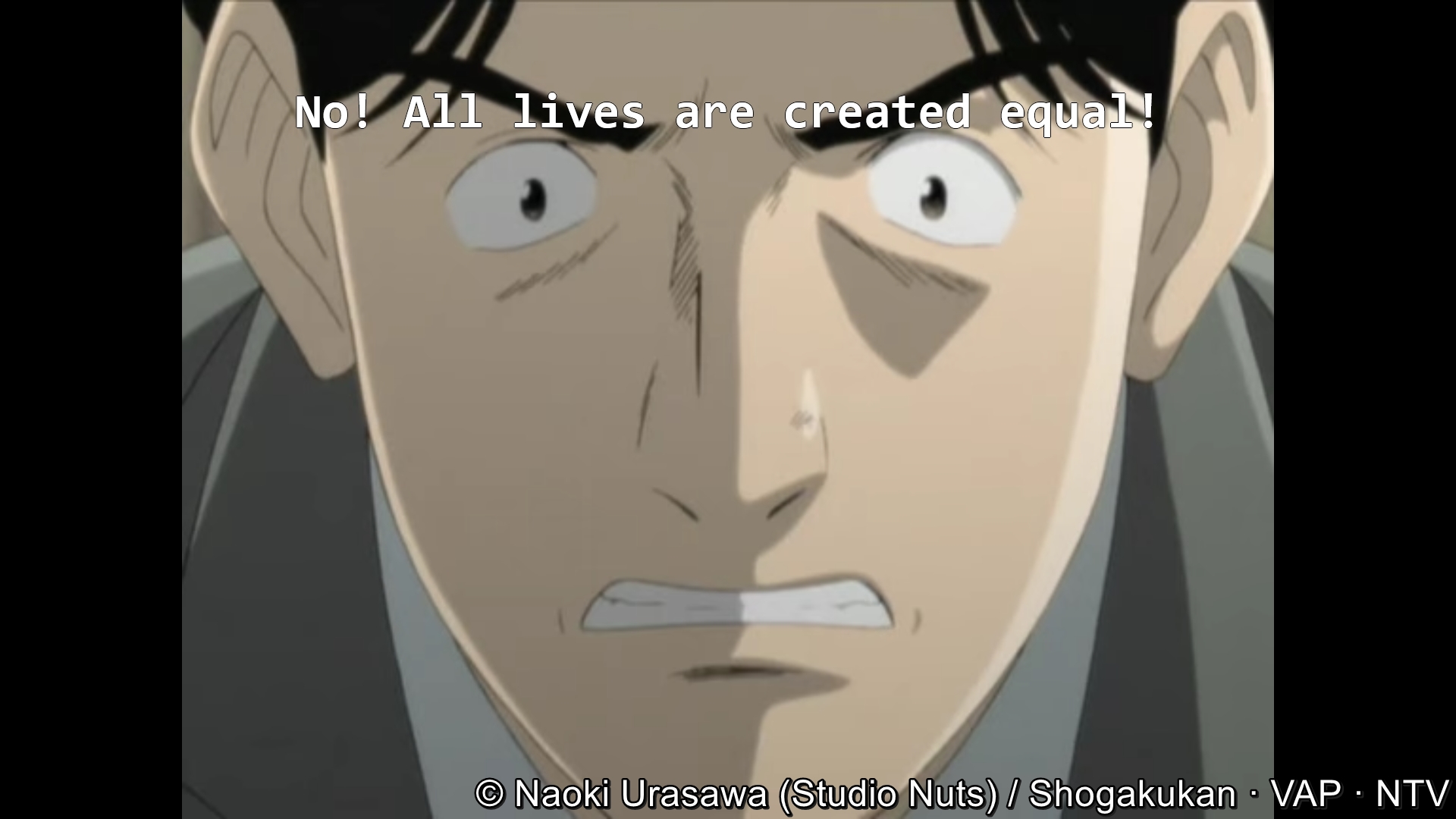
You can hardly blame him for riding a rollercoaster of emotions either, as he's forced to come to grips with the fact that most of those in the medical scene aren't quite as altruistic as one might hope. Surgery is big business, and business can't see all lives as equal.




You can hardly blame him for riding a rollercoaster of emotions either, as he's forced to come to grips with the fact that most of those in the medical scene aren't quite as altruistic as one might hope. Surgery is big business, and business can't see all lives as equal.


He has aspirations to further his research to make advancement in his field. Still, it's clear to him that his superior and future father-in-law is just using his talents to make himself look better, crediting his achievements as his own and even putting aside Tenma's studies to have him write his speeches. While he puts up with it, Tenma becomes horrified at the air of corruption that enshrouds his everyday life. This show may look a little crusty to newer viewers with its old master and 4:3 ratio, but it's still got excellent shading, lighting, and sound to carry the mood.


I was surprised at how well Monster's looks hold up for an earlier digital show. A lot of that's down to the smart use of color and composition. Madhouse knew how to get the most out of what they were working with at the time. I wish the resolution could be a little higher, but it's remarkable that even then, it can still carry more minor details, like this poor, traumatized little girl's chapped lips.

I'm sure she and her twin brother will be just fine!

I'm sure she and her twin brother will be just fine!
It's the block shading/cell shading I miss as tech advances away from traditional art, but it's also perfect for the noir vibes. Even a bright-as-day clean hospital feels dingy. Kenma is constantly framed by this shadow of darkness cast by his mental anguish. Eventually, he gets fed up and chooses to perform surgery on a young boy shot in the head over the goddamn mayor, yet he's still plagued. After doing the morally right thing, he faces many consequences for stepping out of line, causing him to lose his position, his fiancé to dump him, and the respect from his colleagues to diminish.
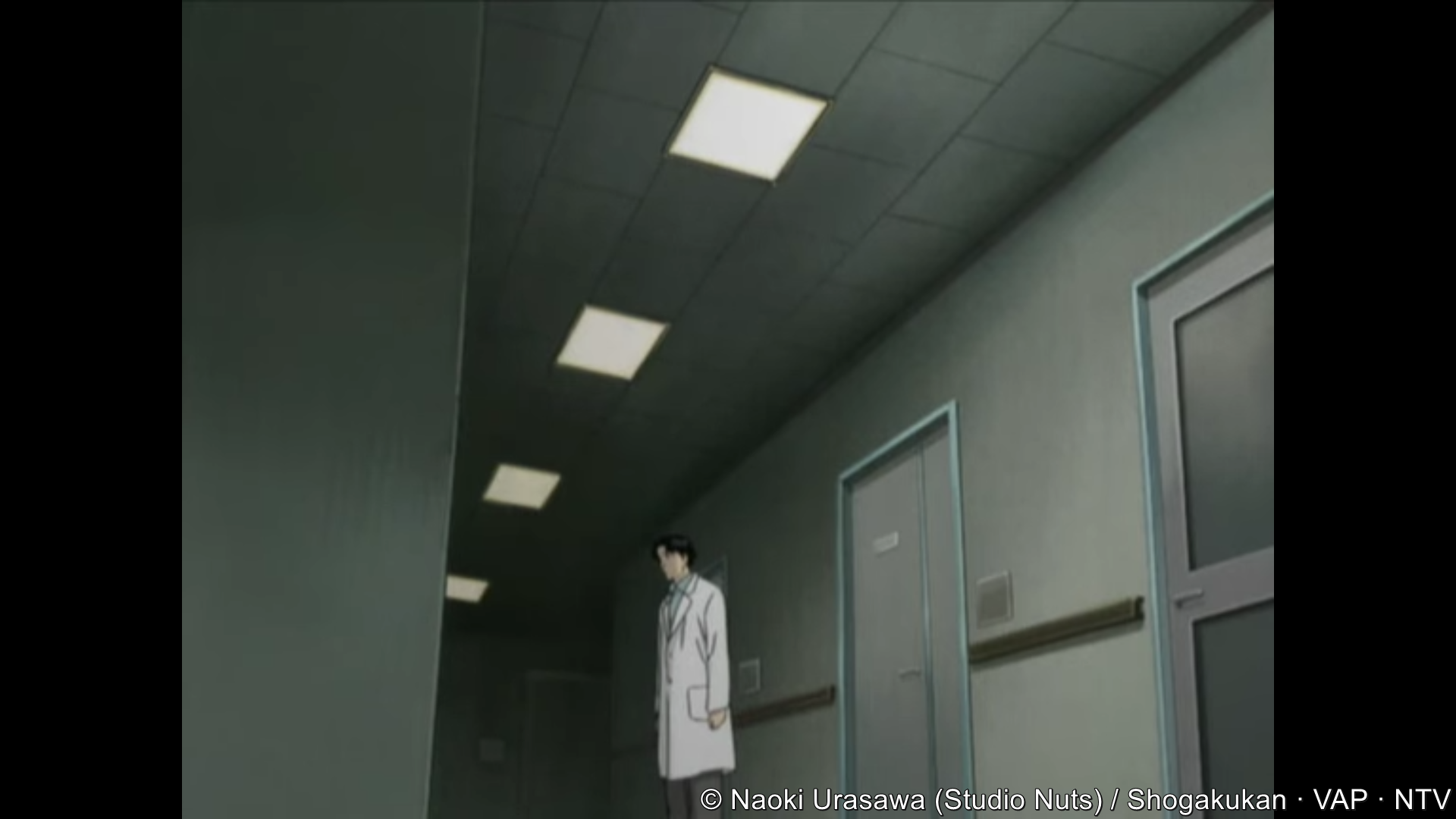

Even with characters like the hospital director racking up selfish scheming of cartoon villain proportions (not that real-life businesspeople are known these days for being terribly nuanced), I like how Monster still strives to depict things in degrees. Tenma can't save everyone, even if the mayor dying was more the fault of the hospital's selfish workflow prioritization than his inability to perform two surgeries at once.


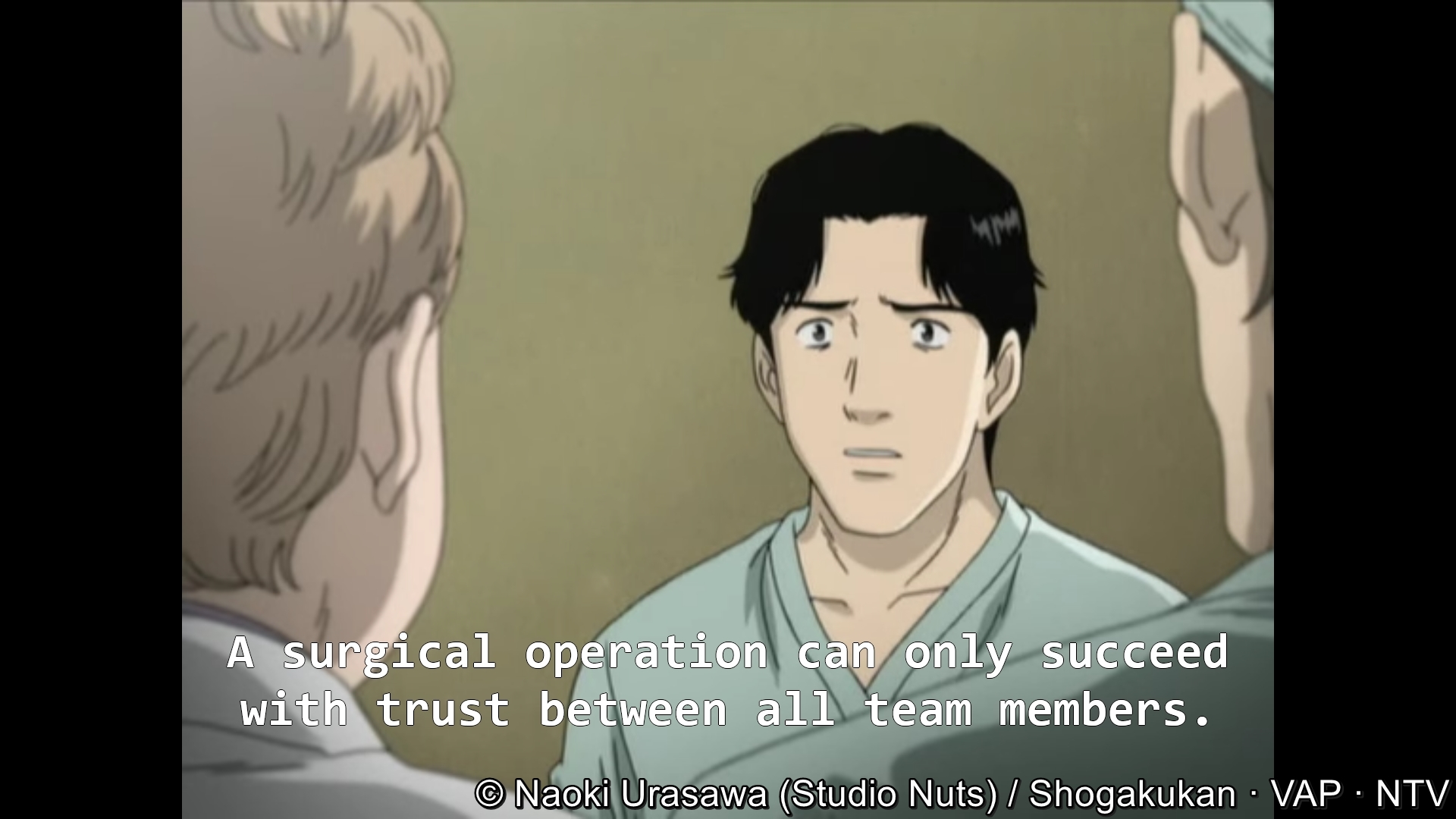
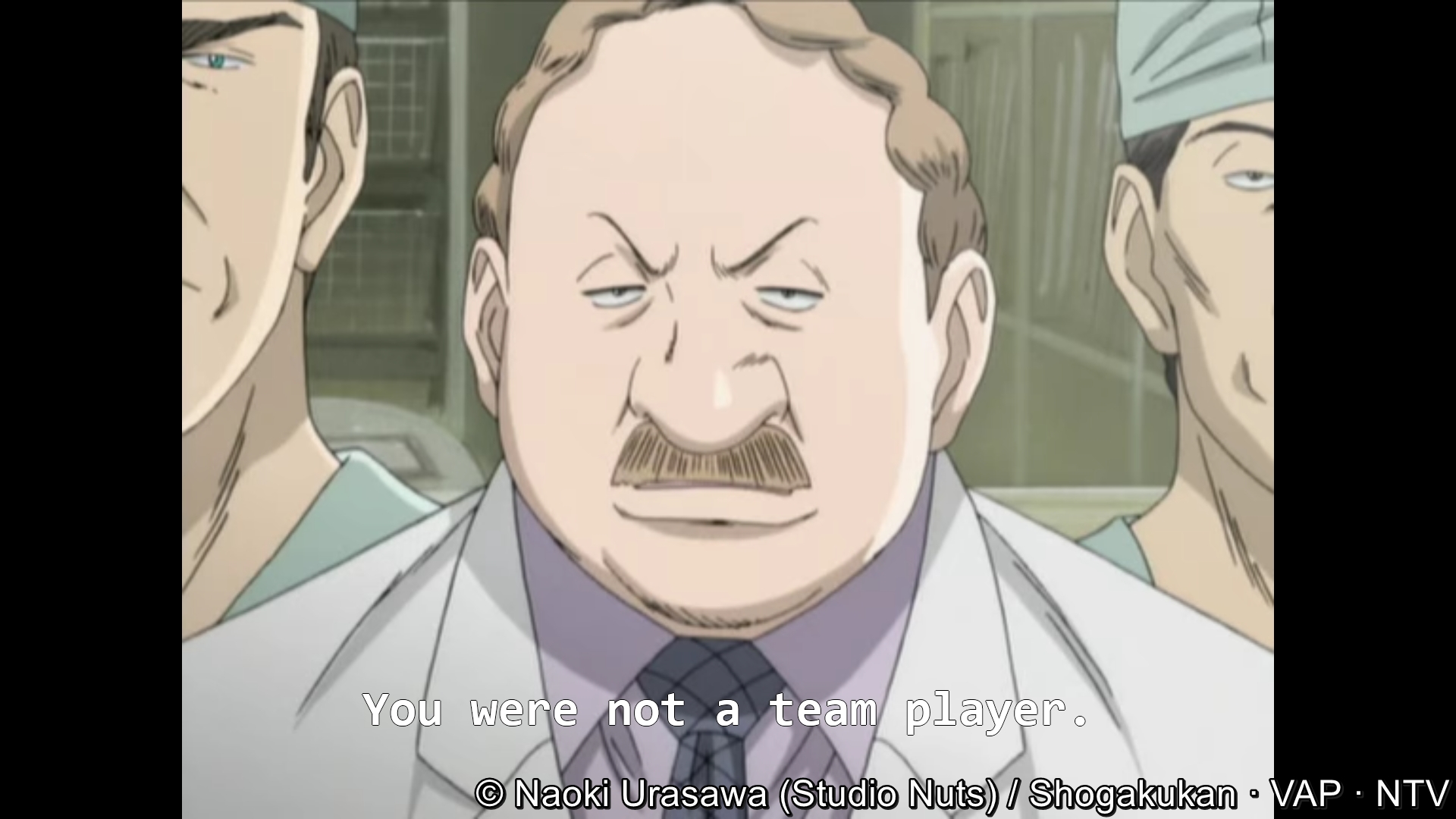
It begs the question of what is the right thing to do when you don't know the ultimate results. Do you save the first person that came in, regardless of status?




It begs the question of what is the right thing to do when you don't know the ultimate results. Do you save the first person that came in, regardless of status?
The irony, of course, was that I could contemplate these questions because I knew the overall plot and twist of Monster and how Tenma's choice to save this kid would ultimately turn out.


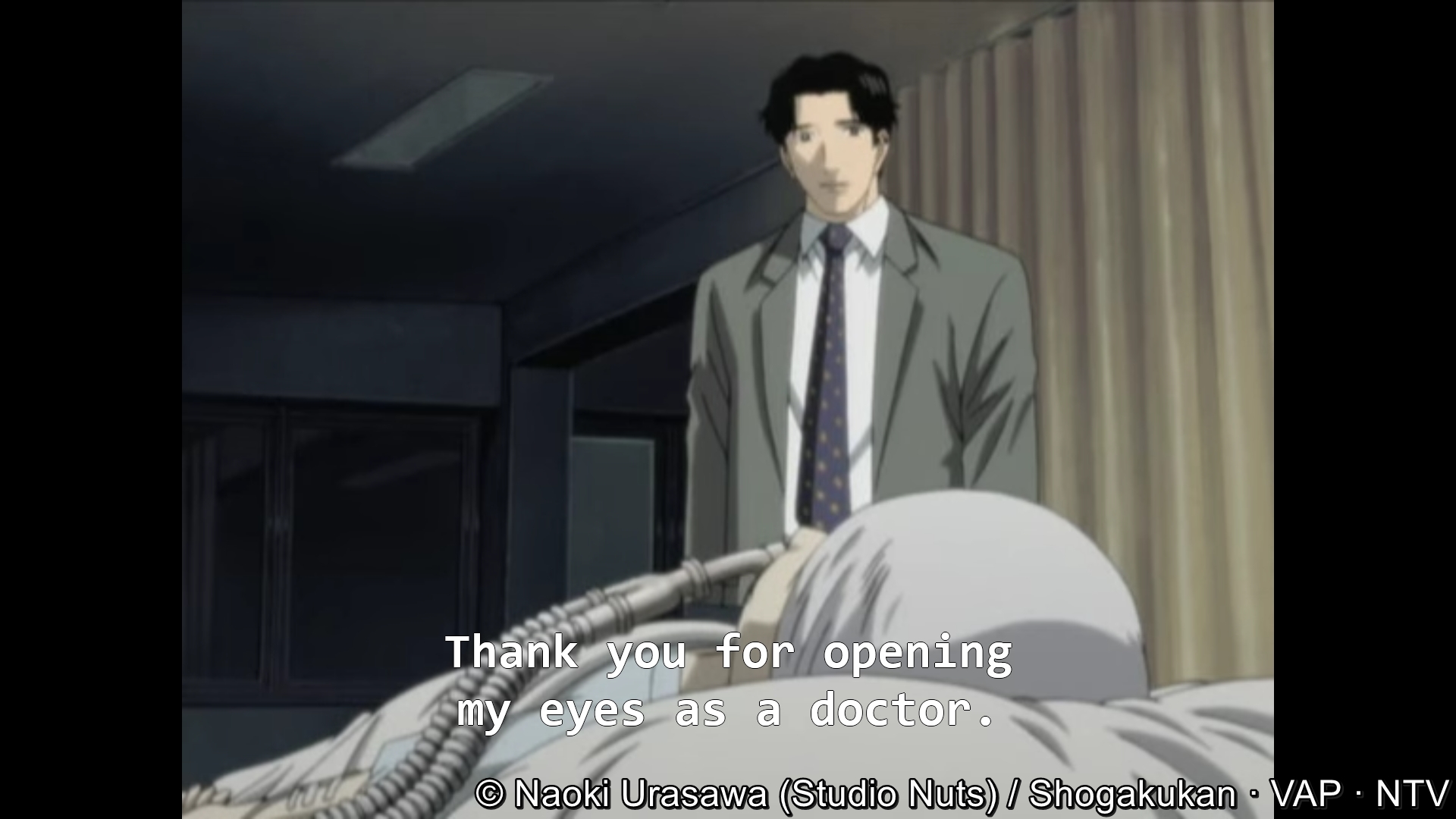
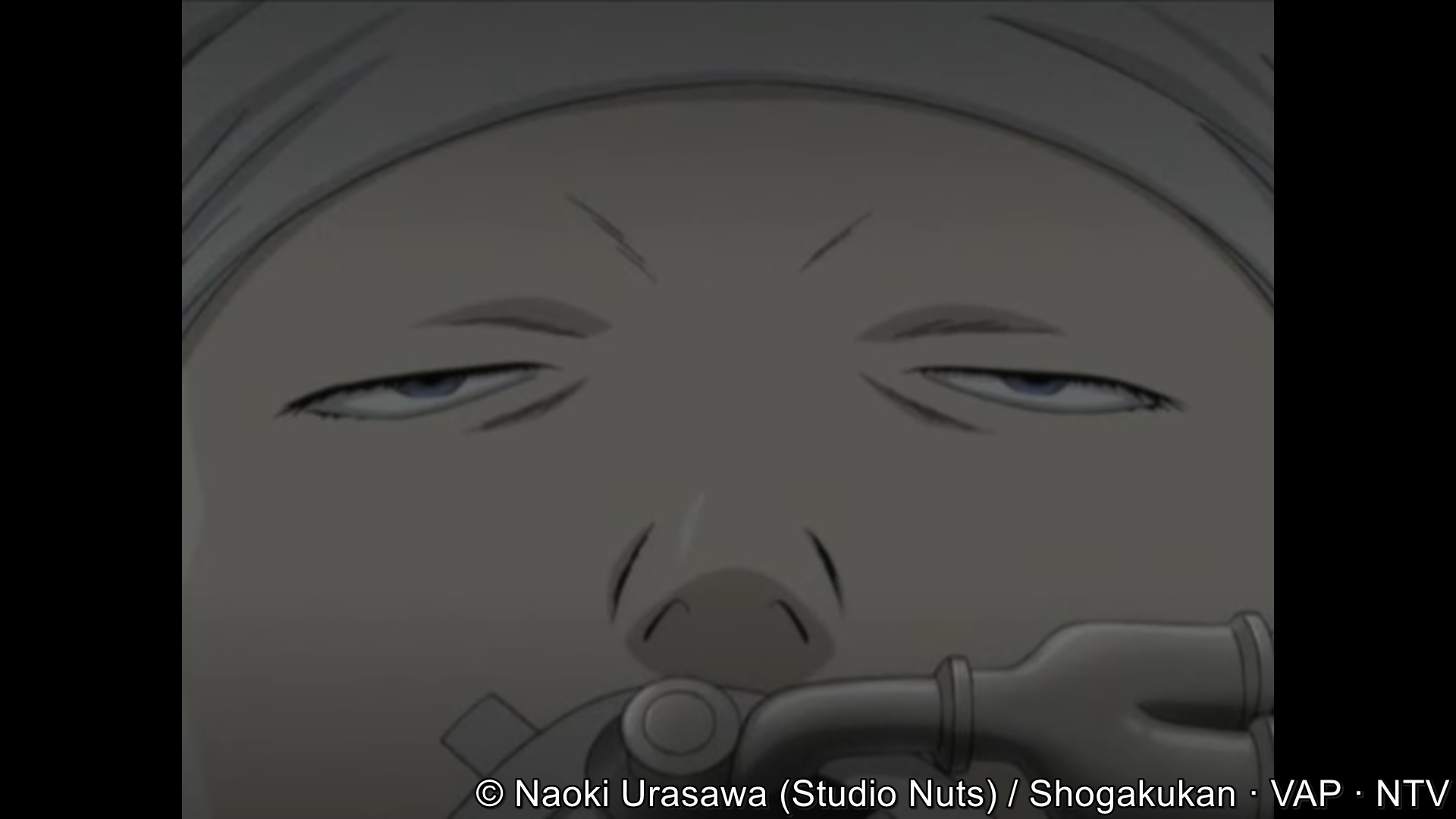
I'm impressed that Tenma never mentally wavers on his decision to save a life even as it wrecks his. The director tells him never to think about getting anywhere in the industry. He's too good of a surgeon for them to let go but getting stuck in a career limbo for the rest of his life means he can bury any remaining dreams he had. The hospital administration continues to depower him so they can use the children's sob story to boost their reputation. It's so evil that they even take a poor, sick boy's candy.
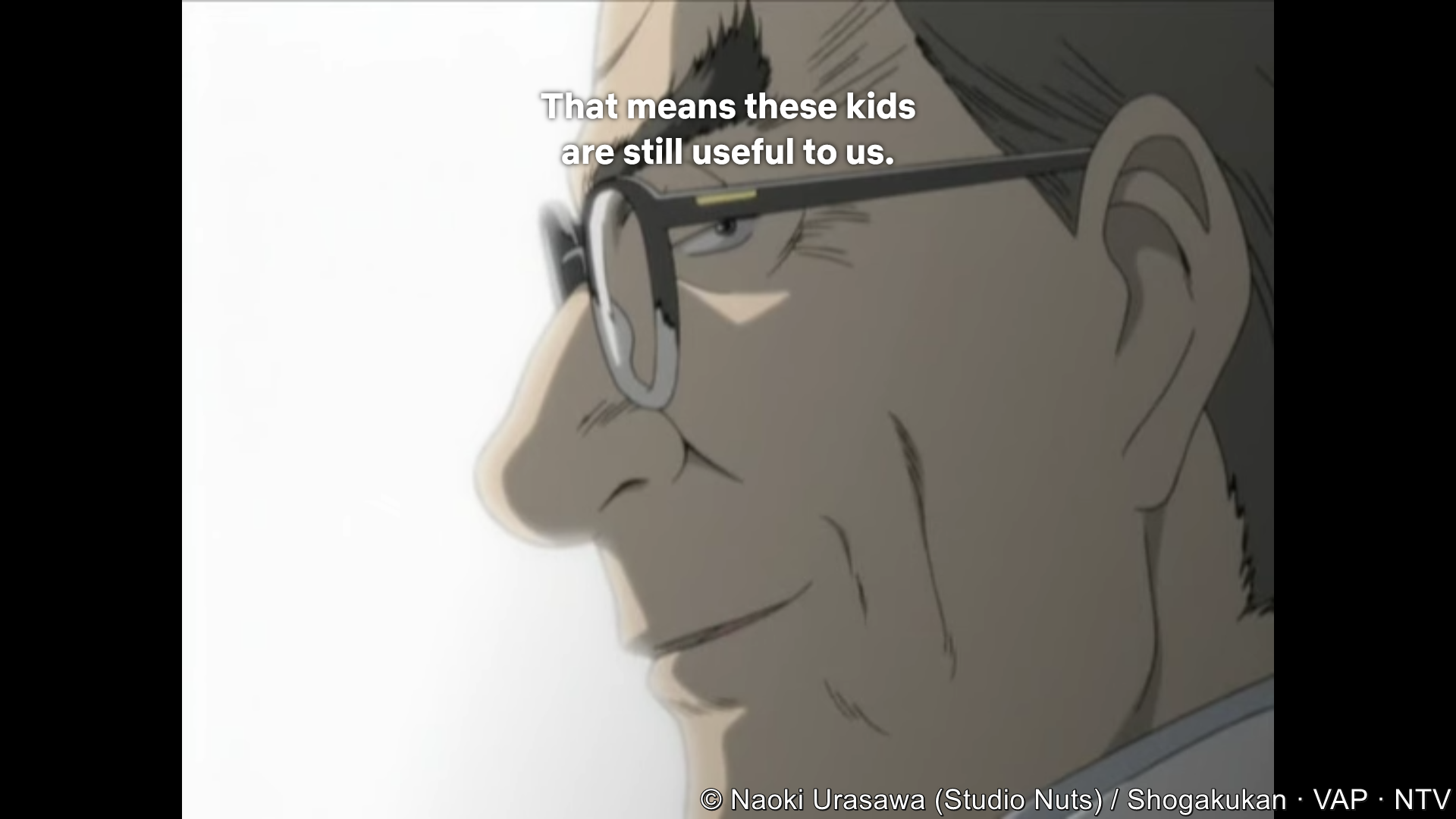

Meanwhile, there's been no progress on the murderer who killed the children's parents, as both twins cannot speak.


Meanwhile, there's been no progress on the murderer who killed the children's parents, as both twins cannot speak.
The girl can say "Kill," but that's hardly helpful given that that's the sum total of what everyone knows happened.
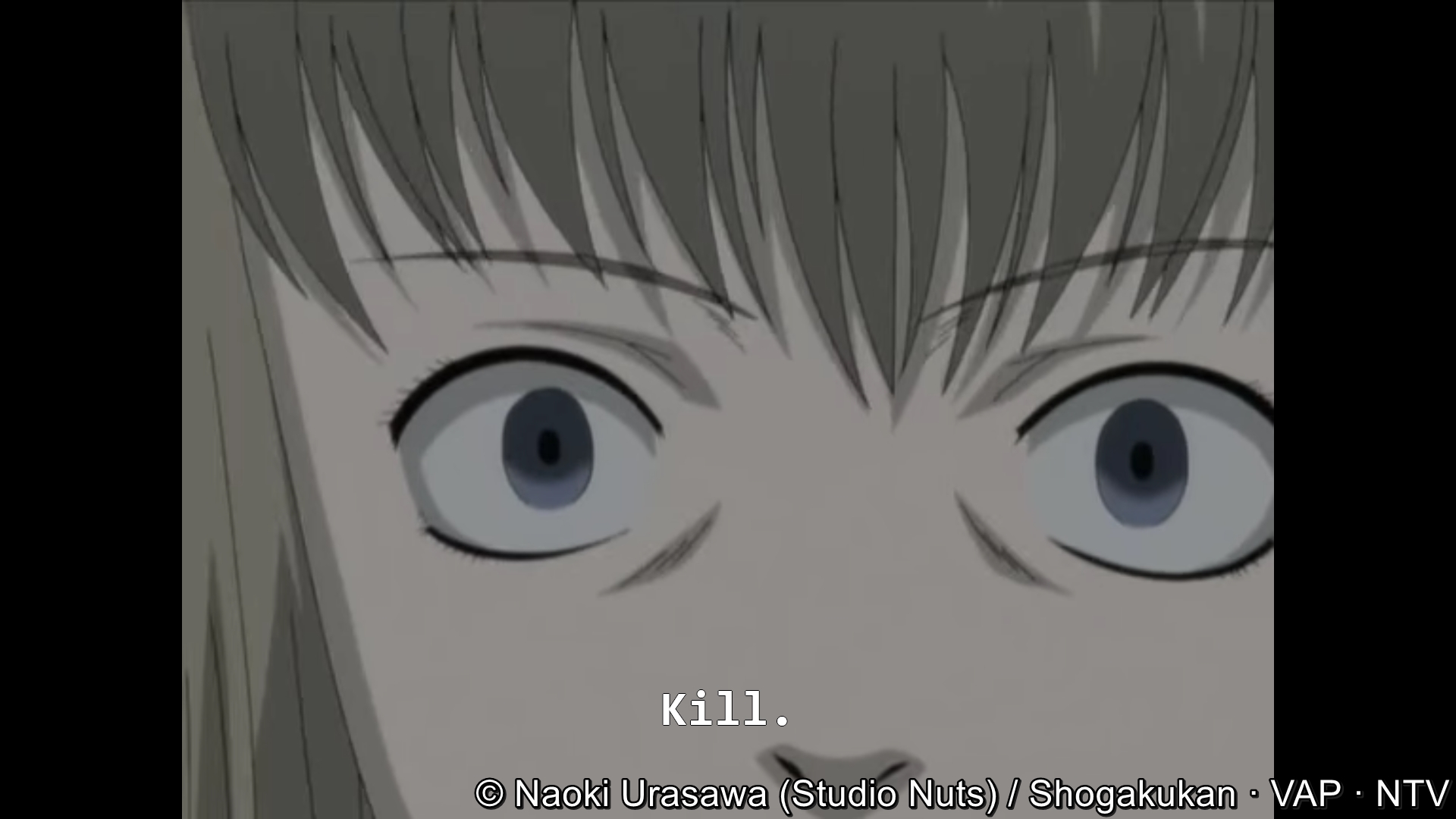
The kids also tend to wander out of their hospital rooms and go missing, which seems like a pretty major security issue, but in fairness, I don't know much about healthcare operations in 1980s Germany. Besides, I'm sure their incidental disappearances have nothing to do with the other mysterious murders that befall those candy co-opting hospital board members!
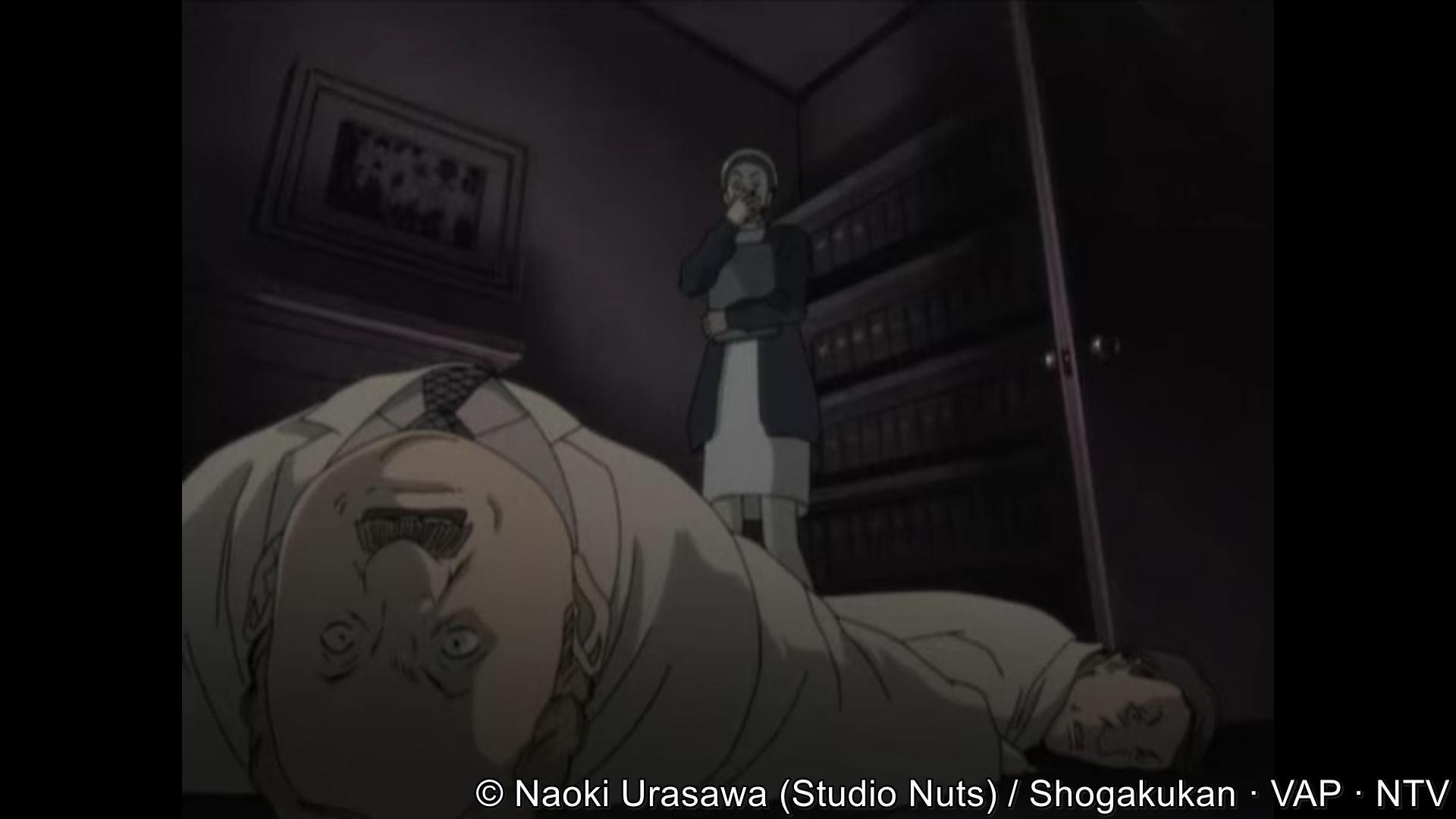
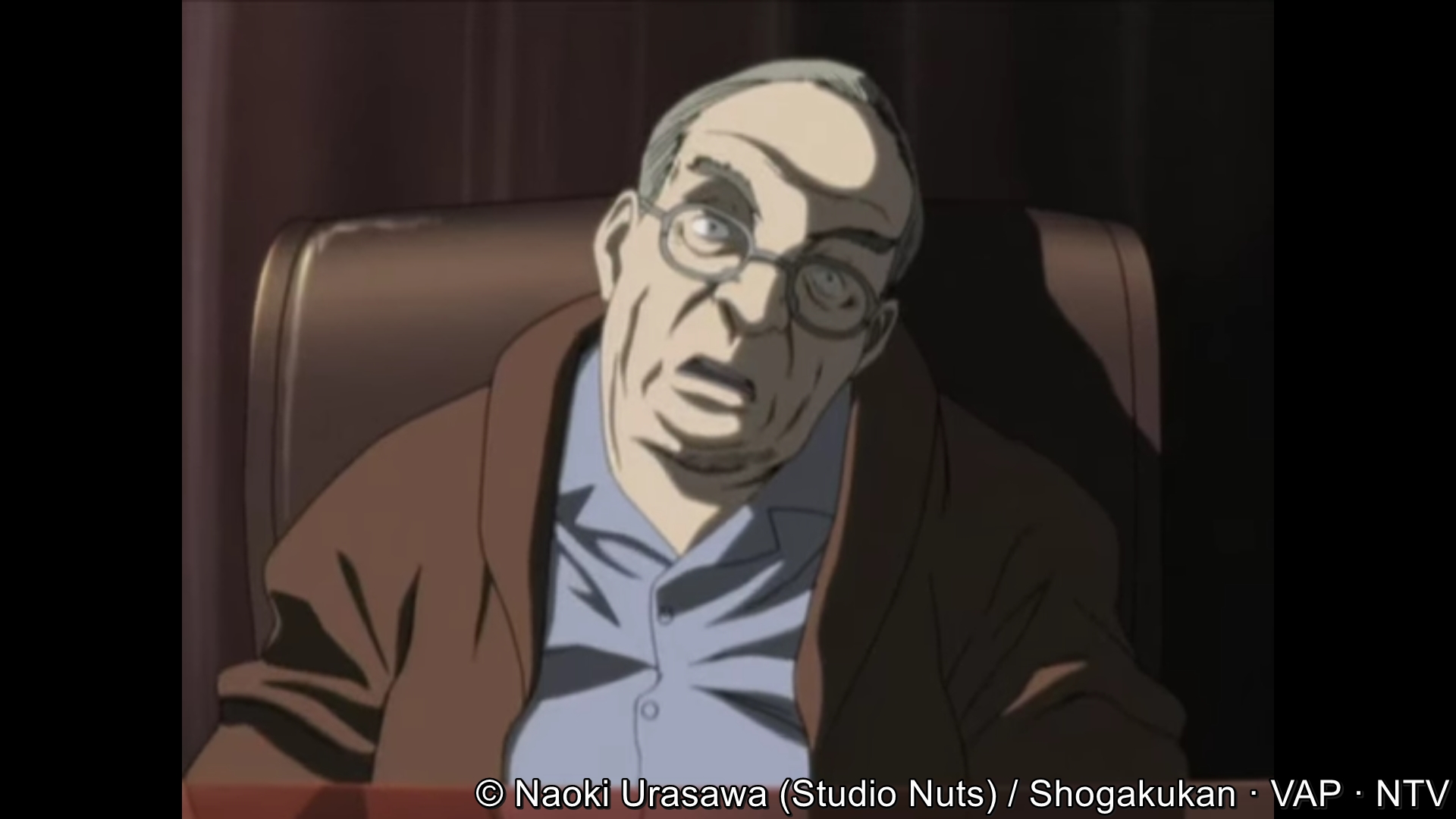

The kids also tend to wander out of their hospital rooms and go missing, which seems like a pretty major security issue, but in fairness, I don't know much about healthcare operations in 1980s Germany. Besides, I'm sure their incidental disappearances have nothing to do with the other mysterious murders that befall those candy co-opting hospital board members!


Tenma gets questioned by an odd detective at the funeral. This man constantly moves his fingers like he's typing notes into his brain, saying that all three victims had nitric acid in their system and candy wrappers around their bodies. Tenma is unaware of how any of this relates to him. Still, it sure is convenient that all the people harassing him are suddenly dead, leaving him open to being promoted to chief of surgery for his skills and undoing the sentence made on his career by the now dead Director.
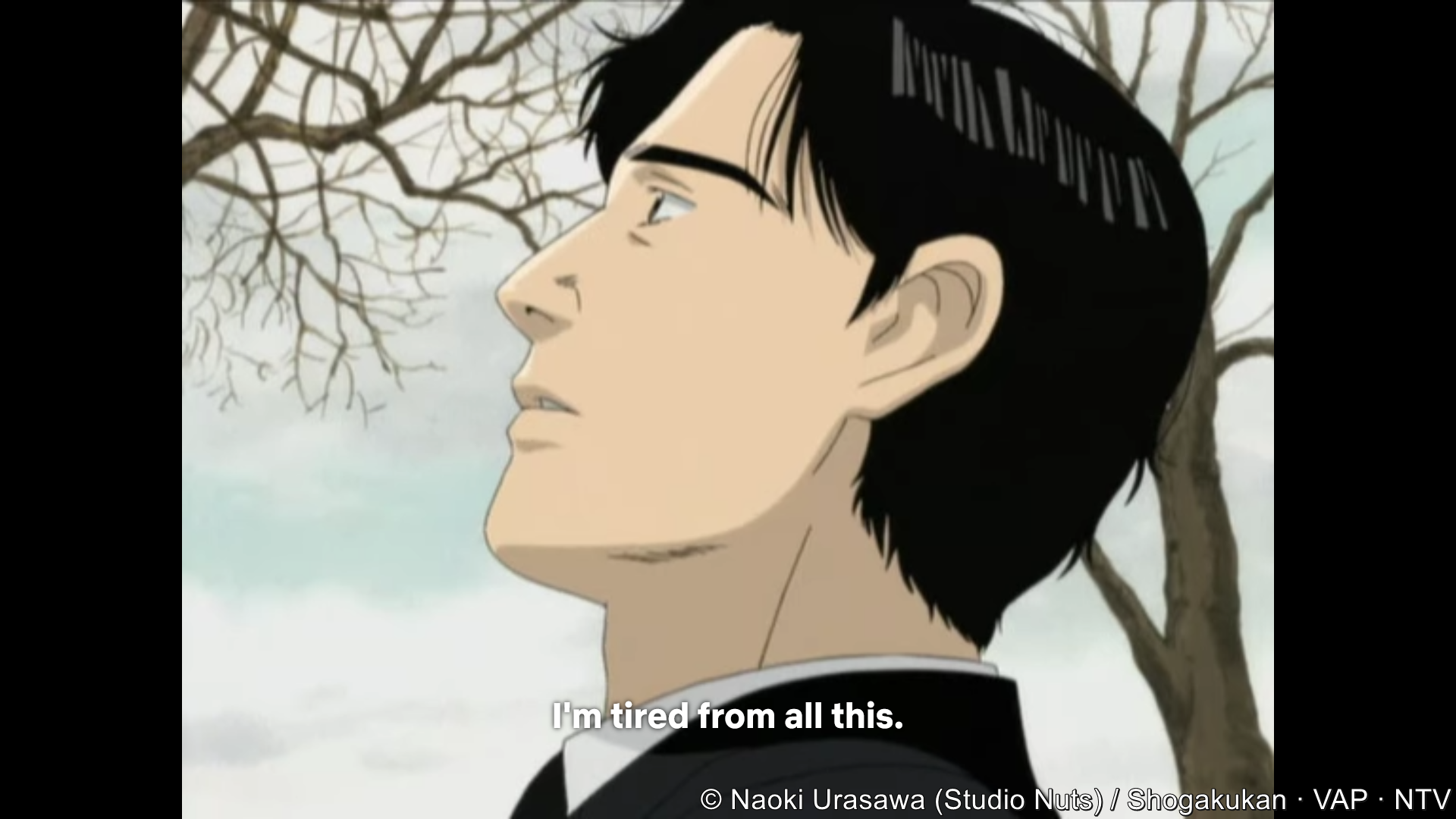
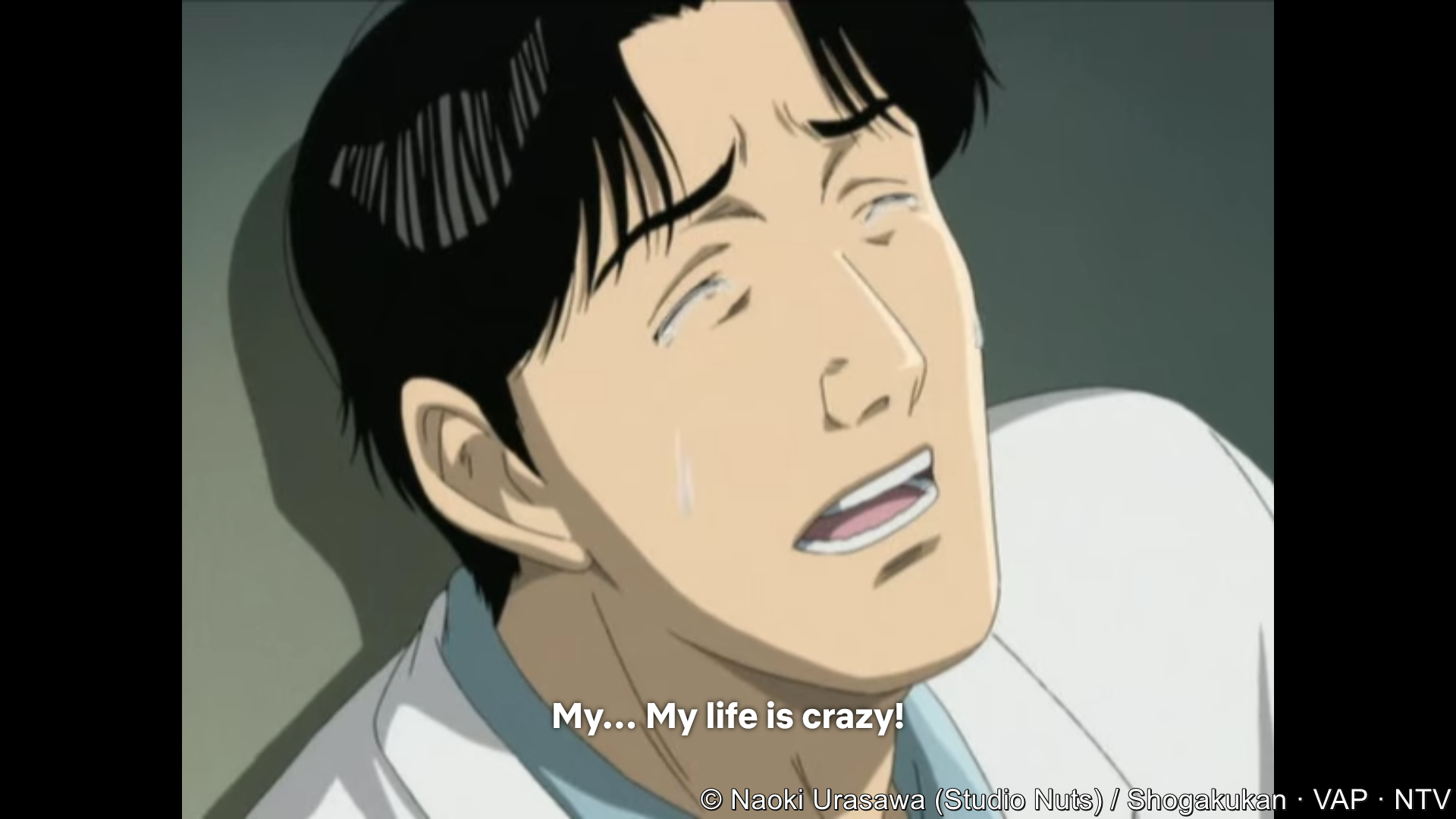


The situation and reaction actually says a lot about Tenma's already established character. He was already staying on-hand at the hospital even with his career dead in the water just so he could keep saving lives, and now even with suspicion for a motivated murder hanging over his head, he takes the opportunity in stride to keep operating at the hospital for the next nine years, helping people as best he can.

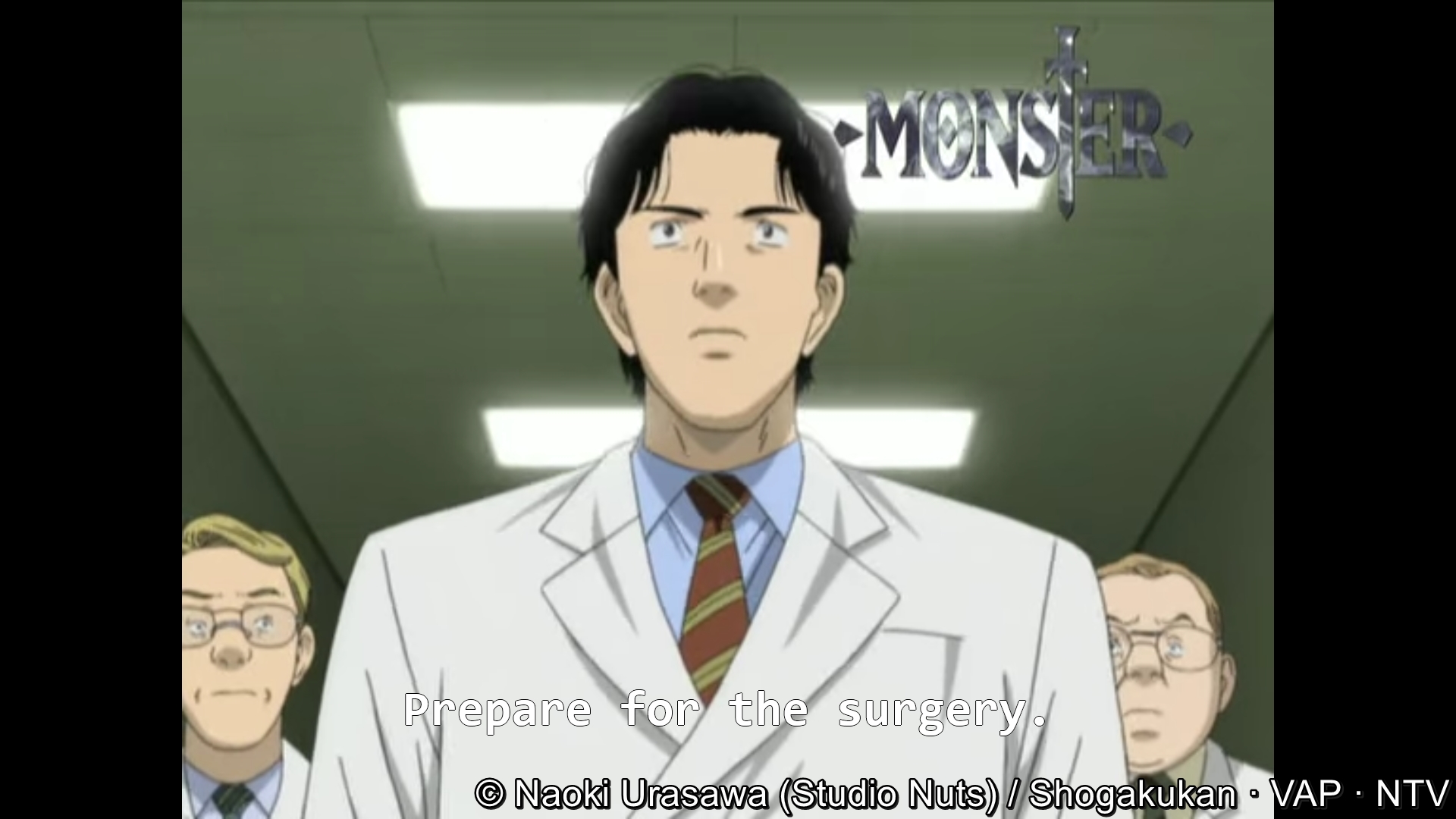
This is all ostensible setup stuff through the first three episodes, but for a slow-boil thriller, it's a good setup that drives home an important point: Dr. Tenma is a genuinely good dude who will go to great lengths to help anybody he can.


This is all ostensible setup stuff through the first three episodes, but for a slow-boil thriller, it's a good setup that drives home an important point: Dr. Tenma is a genuinely good dude who will go to great lengths to help anybody he can.
I liked how even when his fiancé begged him to take her back, he still decided she was toxic and left, unwilling to be used again. It was never about love, success, or being "right" to him. He just wanted to do the good thing. This is the last thing we see before the time skip.

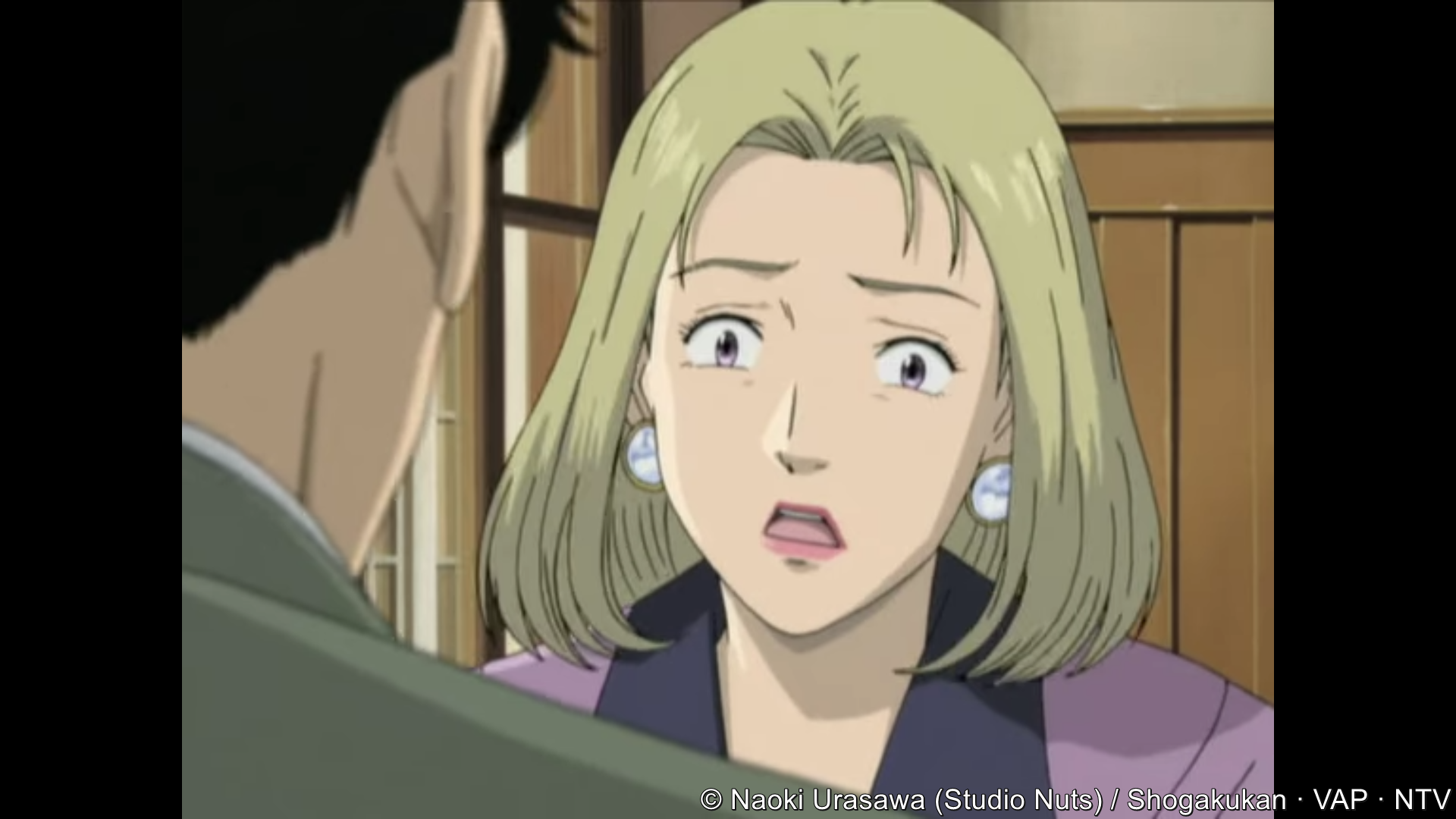
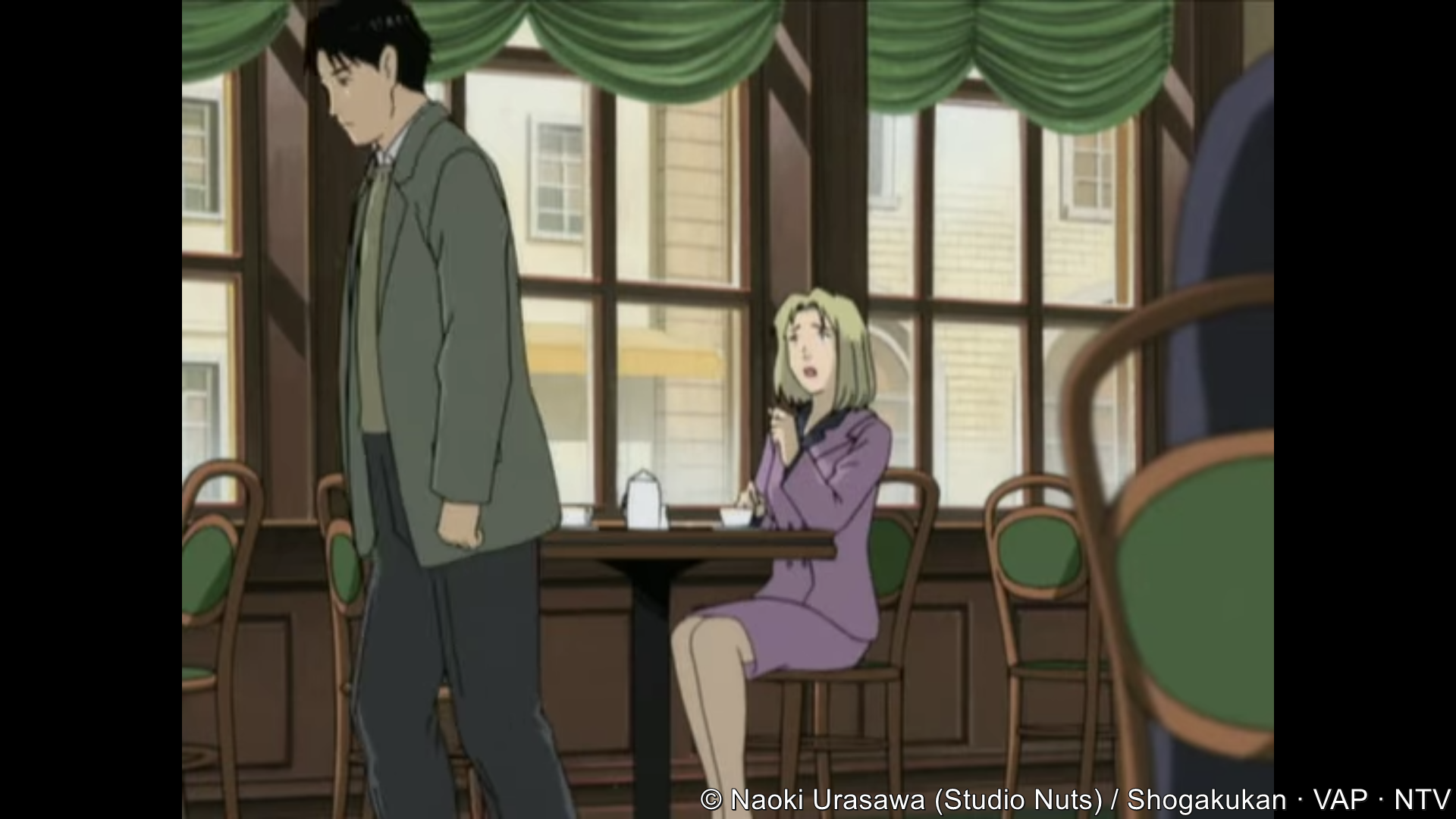
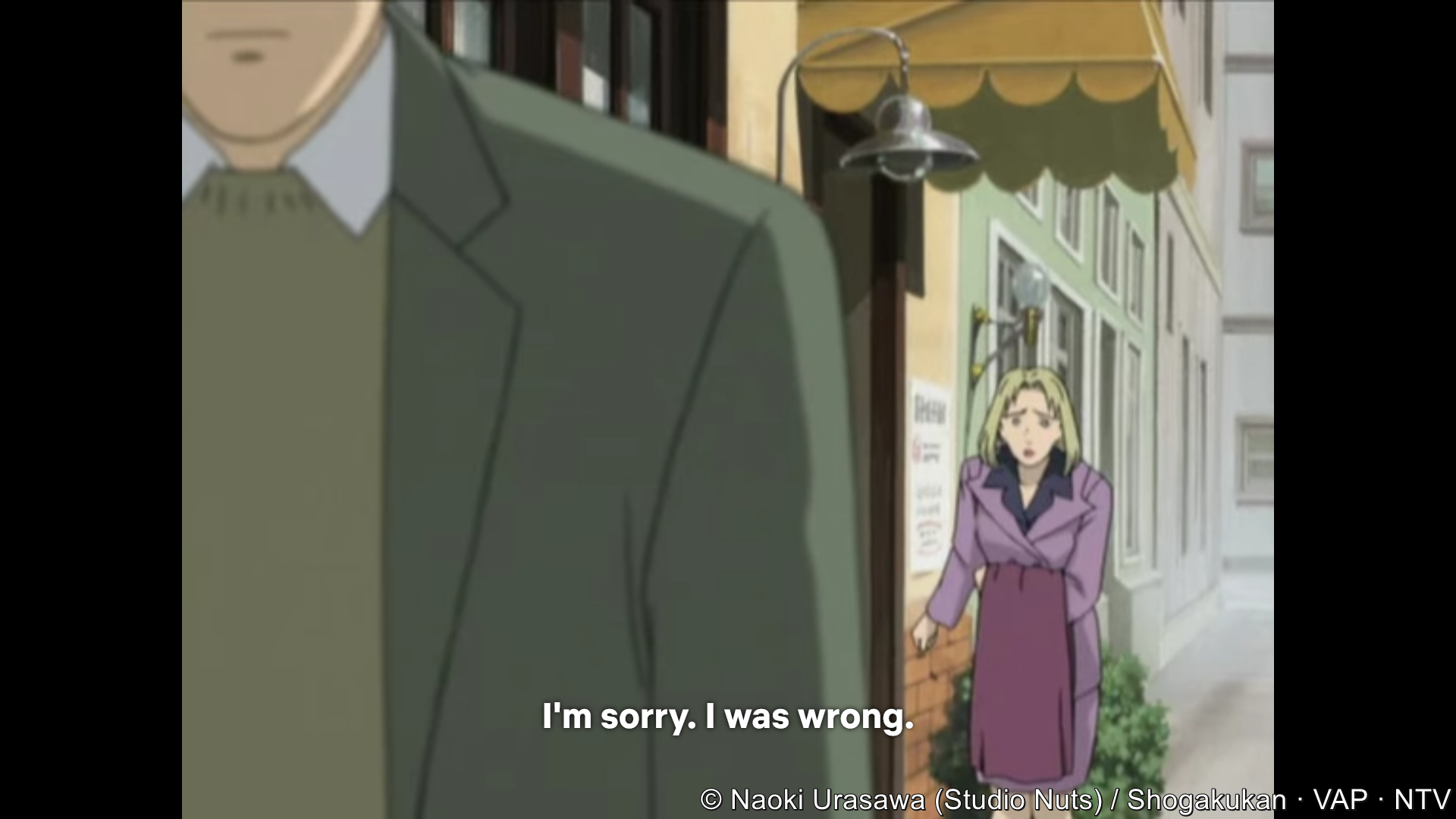




Oh yeah, Tenma's become more perceptive in the intervening years. Though I appreciate that it hasn't turned him into a cynic. He's the kind of guy who will even take time out of his day to cheer up an injured career criminal by going on about how nice the weather is.
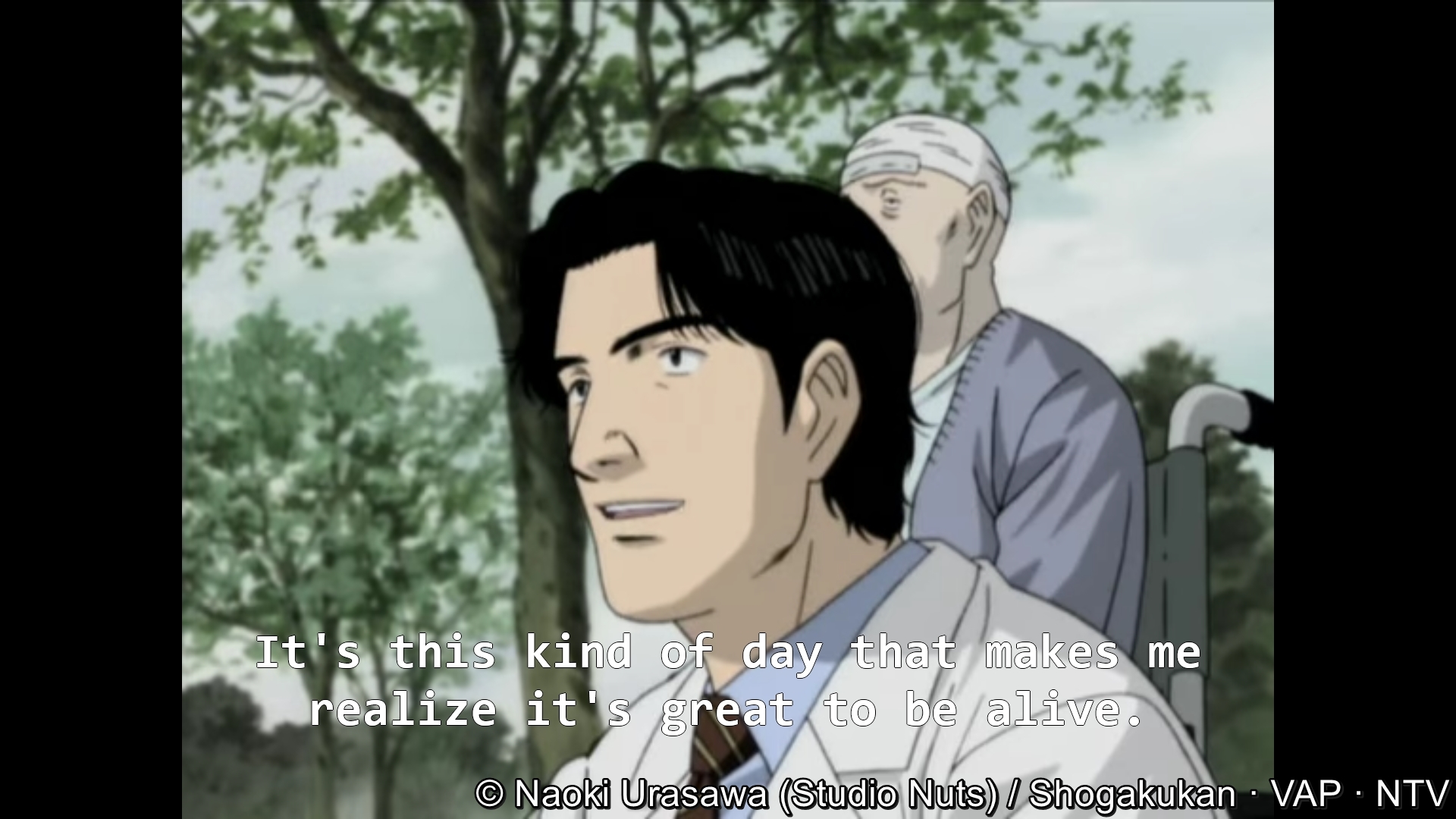
Given that there are still seventy episodes of murder and mayhem left, I have to assume that optimistic outlook won't last.

Given that there are still seventy episodes of murder and mayhem left, I have to assume that optimistic outlook won't last.
Dr. Tenma's life seems to have turned around, but Monster has all the framing of a tragedy; he's currently oblivious, but disasters loom close to him. Just look how sullen and grizzled he is in the opening. Running around, searching for something, or someone, running, hiding.
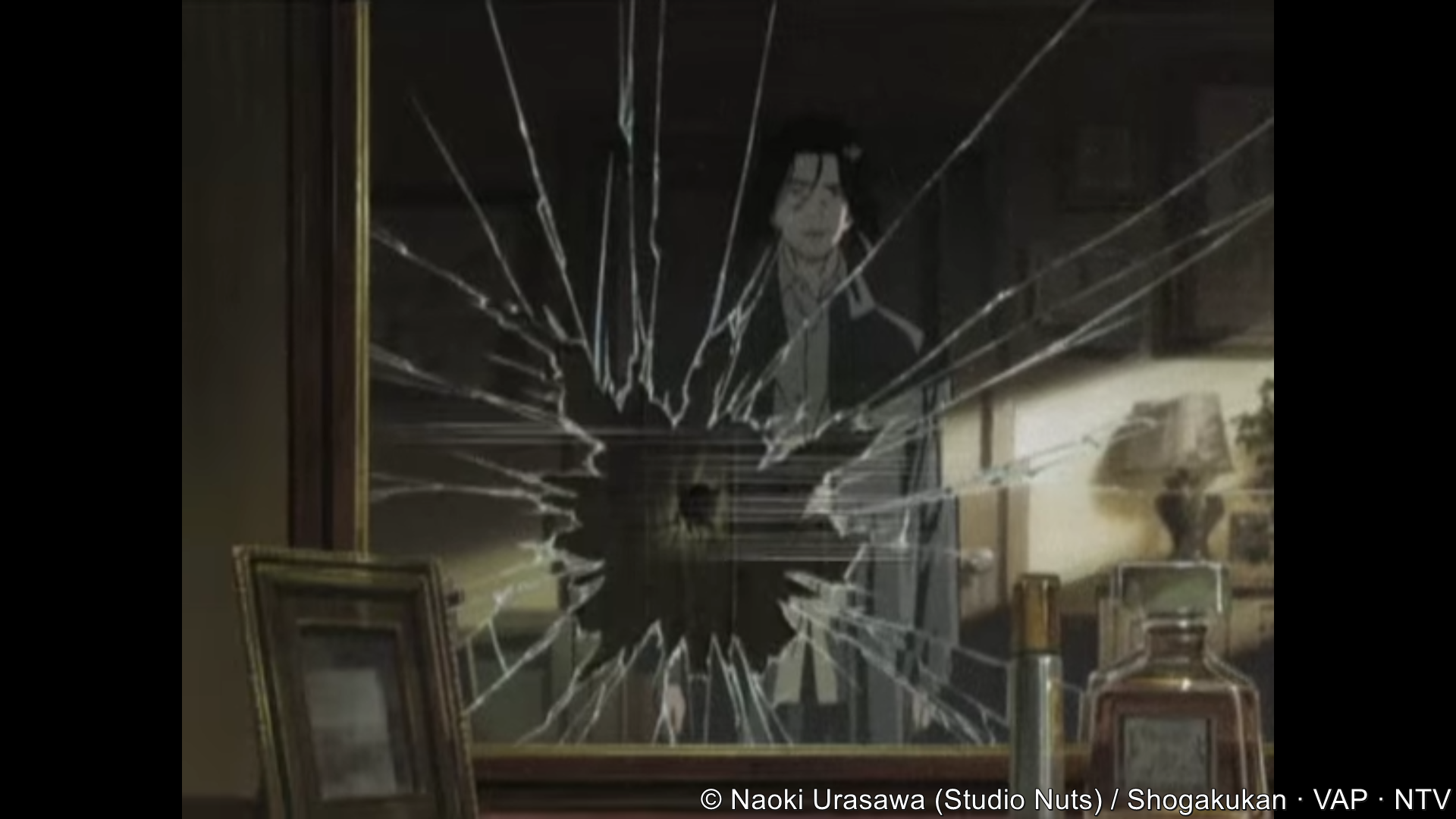
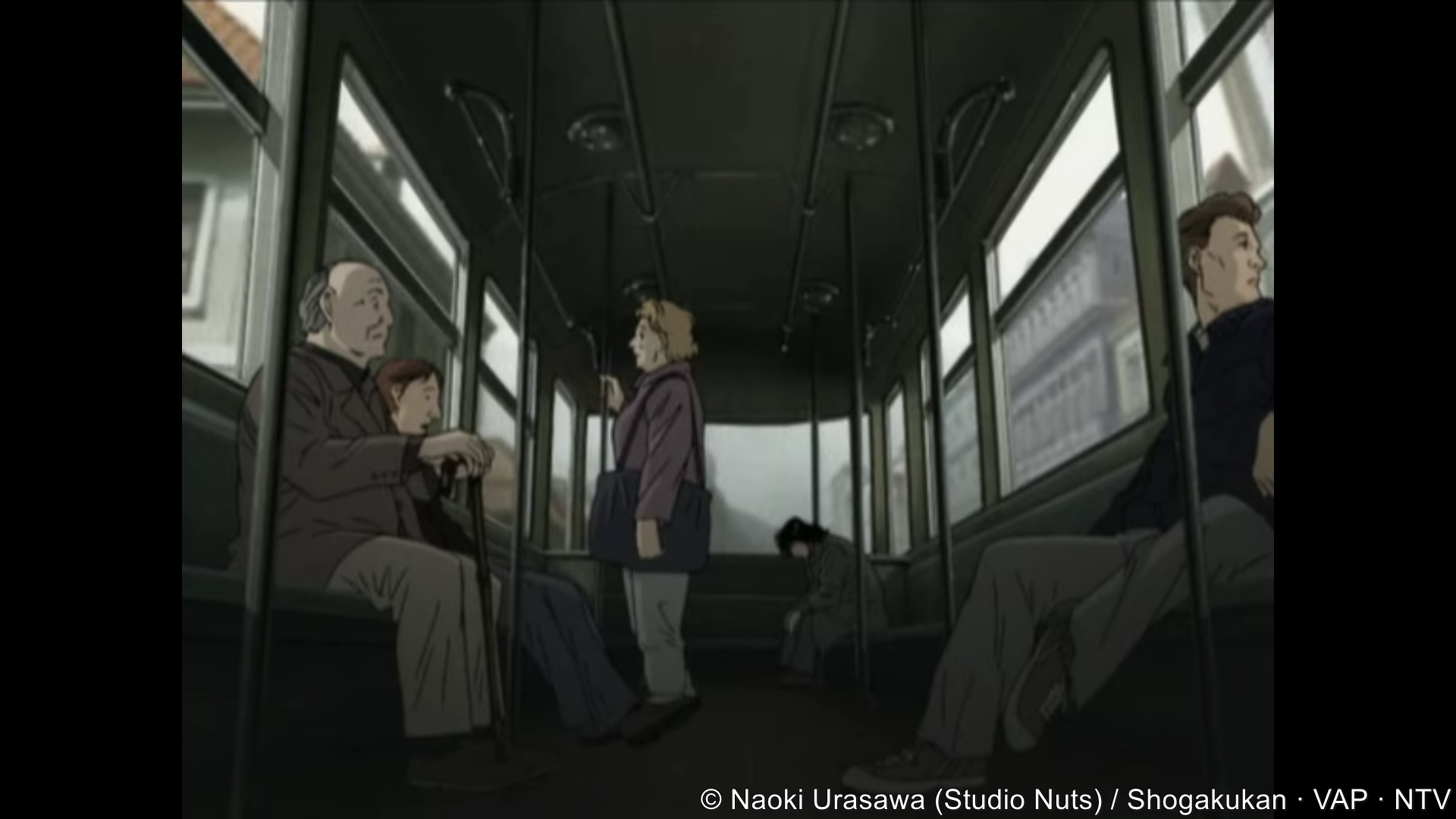


I love that moody, instrumental, and choir opening—real "Anime For Grown-Ups" hours.
I'm more partial to the weird children's book pictures and gently unsettling and transcendental vibes of the ED. Netflix even managed to keep the original lyrics sung by David Sylvian that Viz couldn't.
Oh yeah, those are some killer vibes too. Even knowing what I do about Monster's pedigree, just getting to the end of that mostly establishing first episode and being greeted by that presentation made me realize that this was something special.
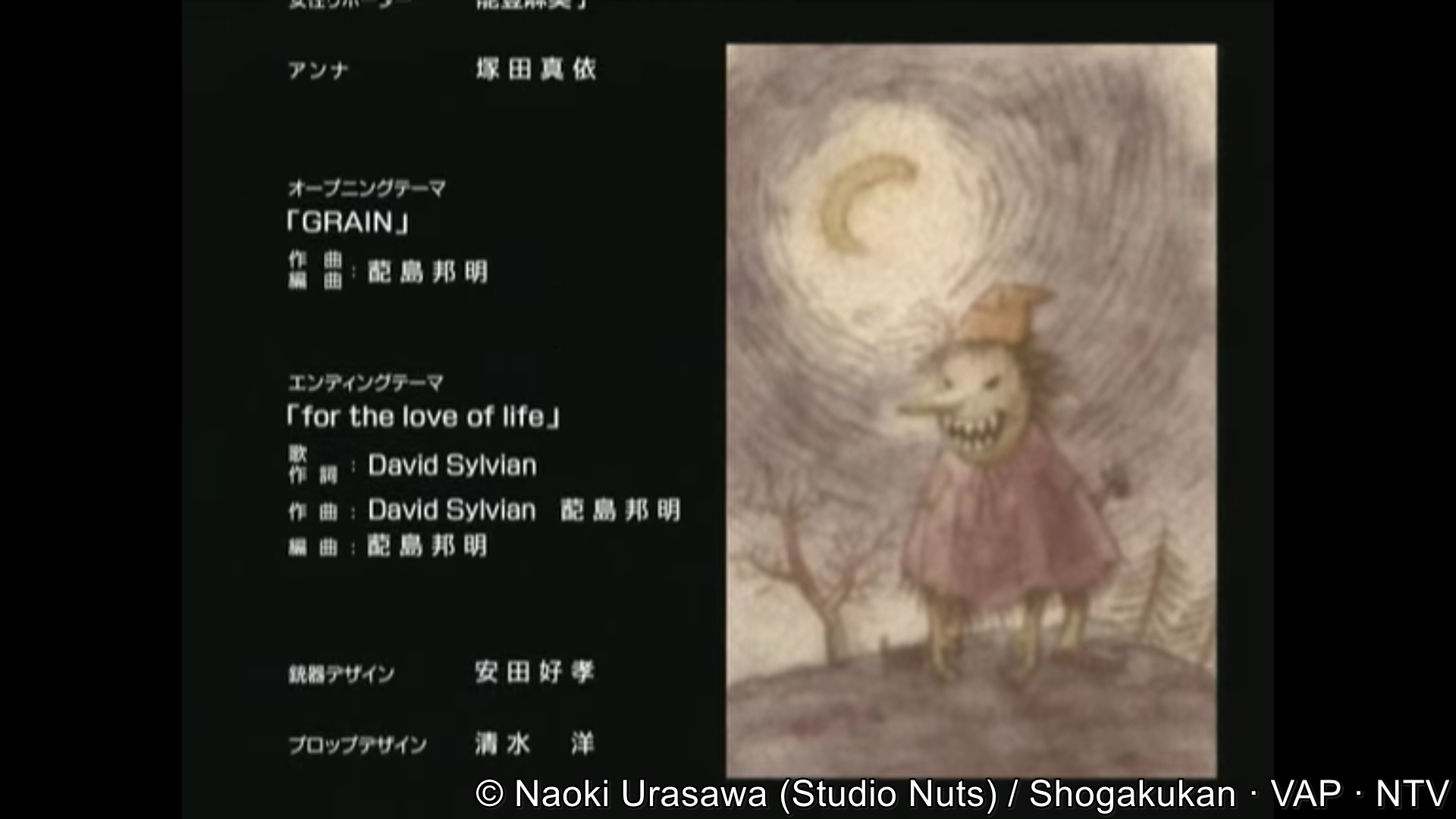
And, of course, speaking of what Monster's known for, that fourth episode is where we finally work our way around to the main hook here: That the cute little kid that Dr. Tenma so selflessly saved all those years ago has turned out to be a serial killer!
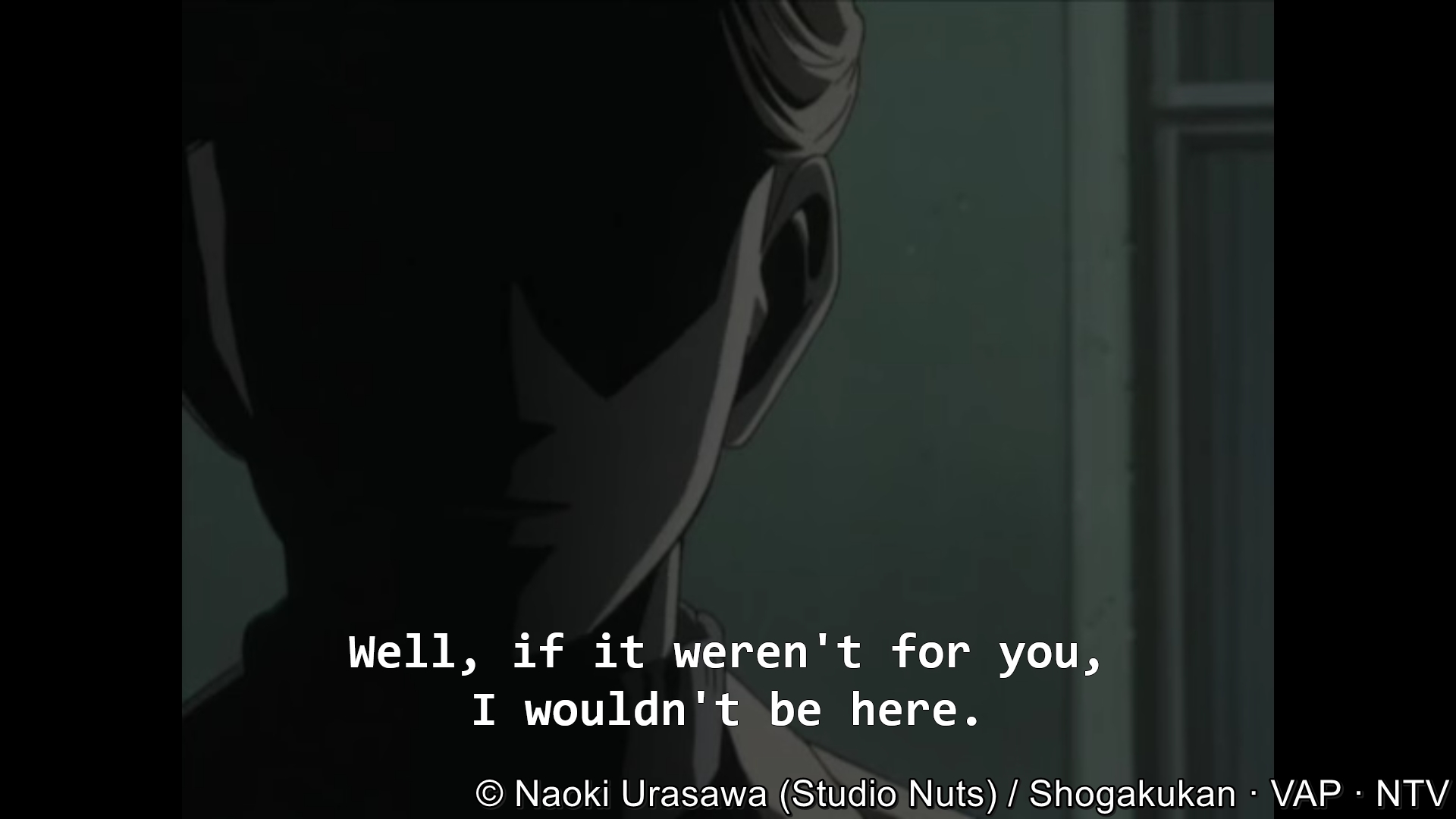
In the medical business, this is known as an "Oopsie-Whoopsie."

And, of course, speaking of what Monster's known for, that fourth episode is where we finally work our way around to the main hook here: That the cute little kid that Dr. Tenma so selflessly saved all those years ago has turned out to be a serial killer!

In the medical business, this is known as an "Oopsie-Whoopsie."
It adds this other huge layer to Kenzo Tenma's moral dilemma. While investigating a case, Dr. Tenma gets called in by the same detective from the funeral to keep an important accomplice alive so they can question him while reminding him that he's still very much a suspect. Kenzo's life seems filled with good fortune, but in a way, it looks too neat to be just good karma working in his favor. Still, Tenma only cares about being a good doctor and looking after his patients, regardless of if they are criminals.
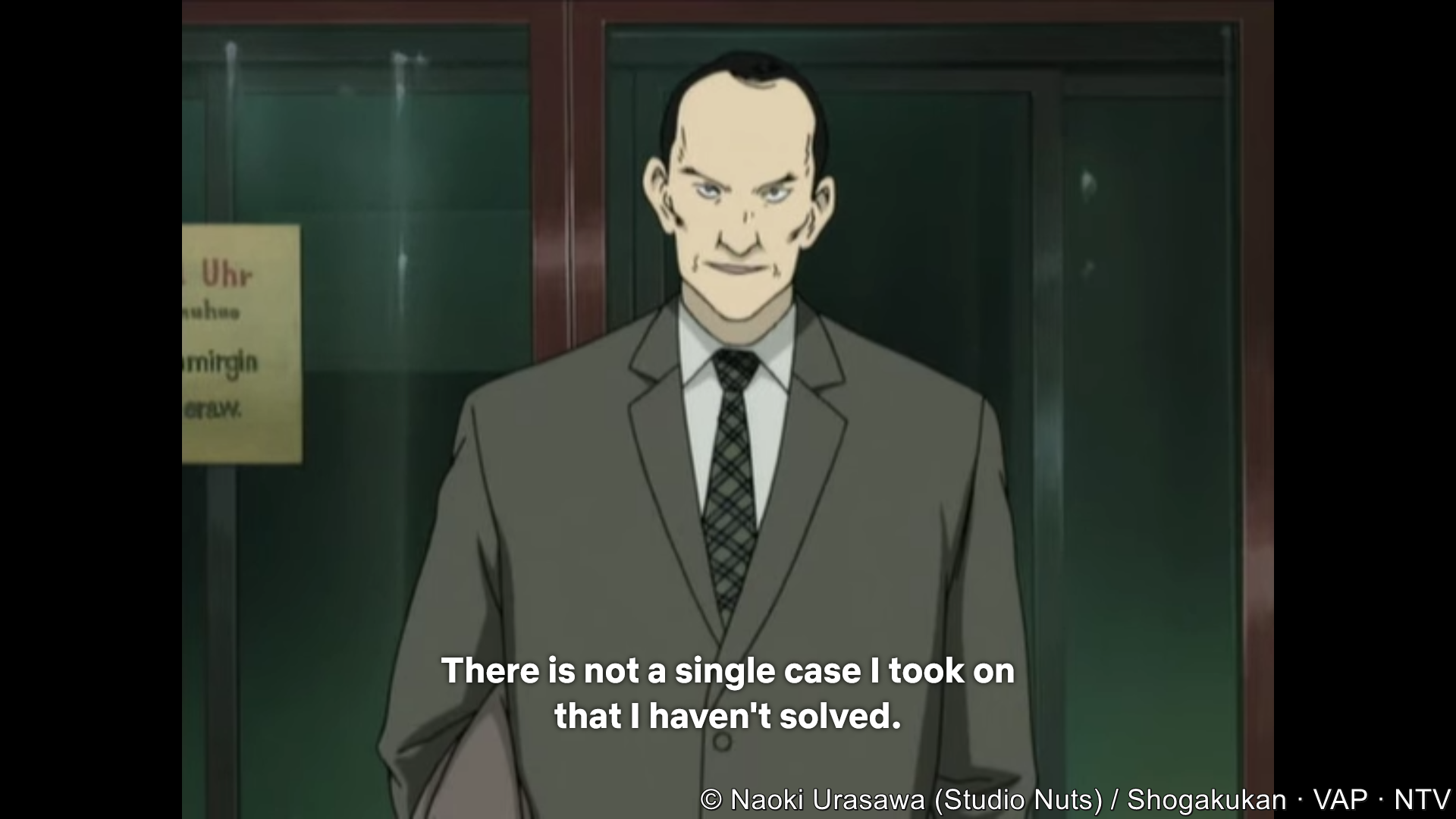
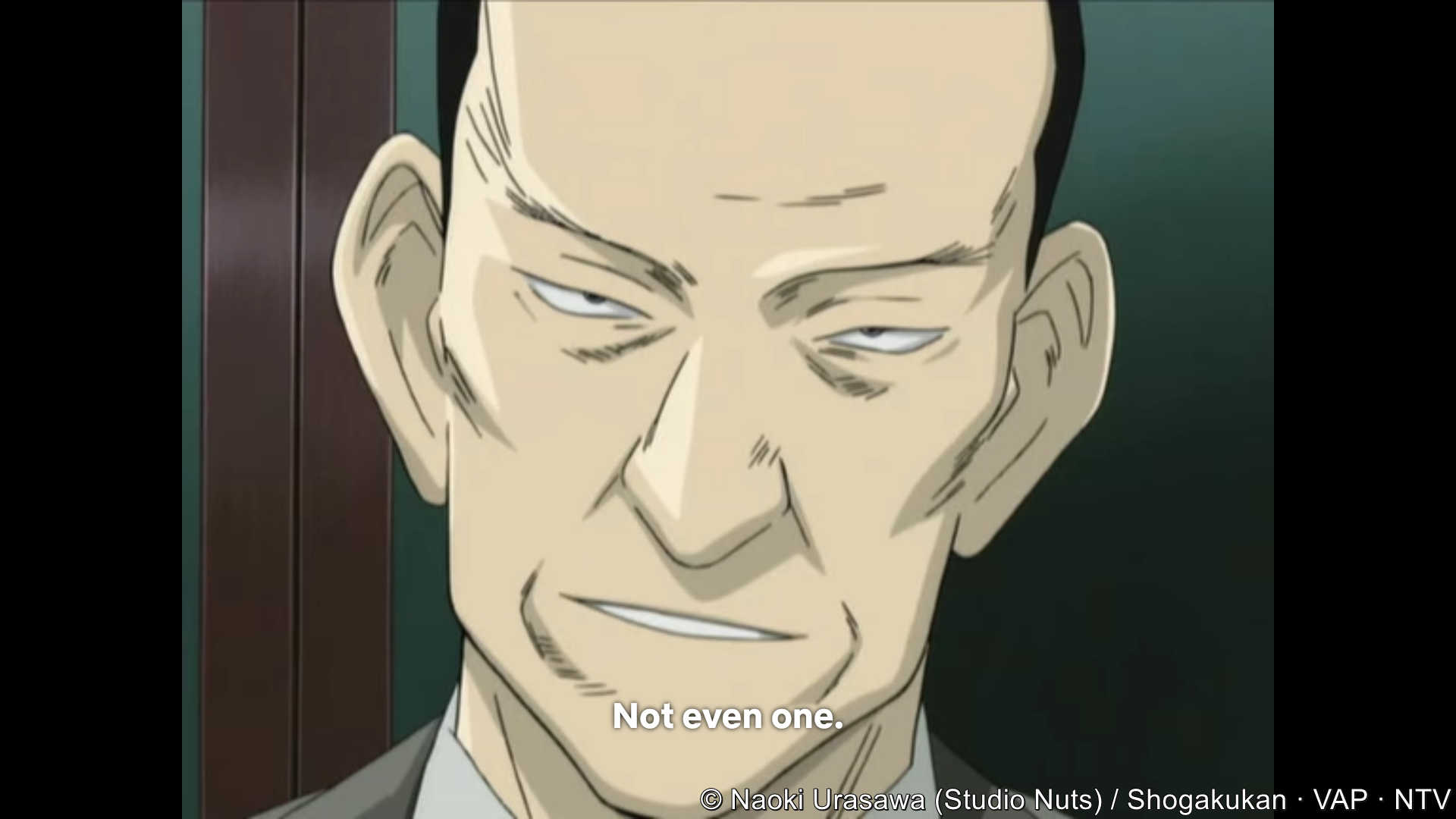


Like Tenma already thought he came to a conclusion on the conundrum of saving the boy (his name is, or was, Johan, by the way) over the mayor. But now he's forced to reckon with the added complication that the result of his efforts, and the foundation of his current caring practice, produced this, well, monster.


There are plenty of compounding whodunnit and howdunnit elements in the show already, but I'm most invested in seeing how far down this could drag Tenma's seemingly unflappable idealism.


There are plenty of compounding whodunnit and howdunnit elements in the show already, but I'm most invested in seeing how far down this could drag Tenma's seemingly unflappable idealism.
With the proper introduction of our main antagonist, we get a stark painting contrasting Tenma, who ultimately treasures and seeks to value all human life as equal, versus a monster who doesn't. Johan treats killing like it's nothing, deeming people as worthless. He killed four middle-aged couples for unknown reasons. He killed the other people he hired to help kill them. He guiltlessly admits to killing the hospital staff, on Tenma's behalf, just before killing Tenma's current patient right in front of his eyes.
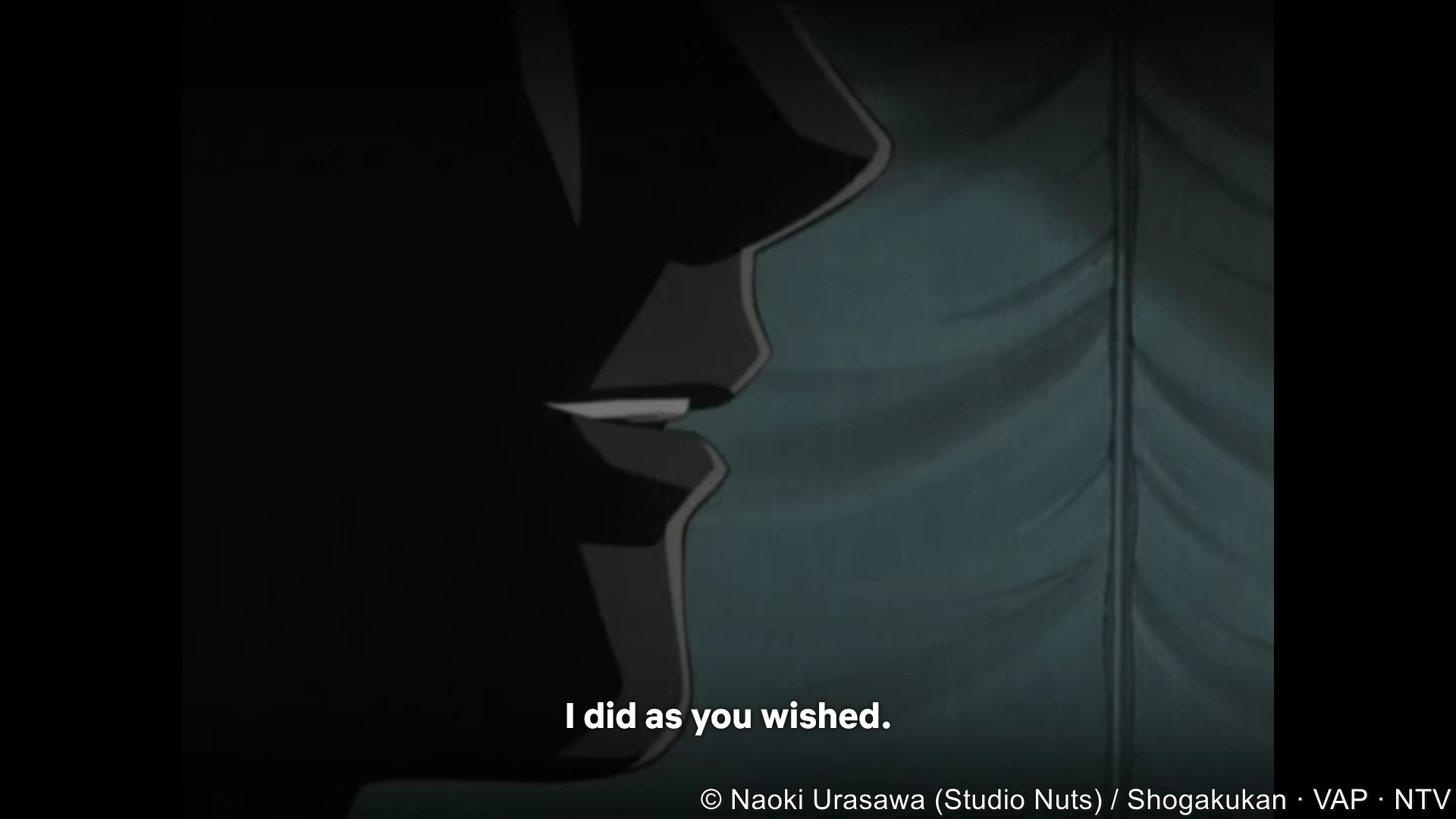

It's a great way to frame revealing the grown-up serial-killing Johan in this scene. His opposing to view to Tenma, that human life is not inherently valuable, could have served as a trumped-up moral quandary that the narrative was trying to argue as a "deep question" (God, does anyone here still remember 2019's Babylon?). But instead, it's used to a much simpler, blunter effect: Johan is a warped, twisted individual, and Tenma's inexorable connection to him is already headed for some serious reckoning.


Written by a stupid person, the basic premise could come off as a "would you kill baby Hitler?" kind of edgelord "gotcha" often used by people who want to diminish others for having standards. Still, the slow burn works in its favor to endear us to the poor doctor's side. We feel bad for him but not so we pity his decision. It feels more like a statement about how those molded by the cruel and unfair world pressure the good-hearted. After telling the truth, Tenma is now even more involved in a series of bloodshed than he ever wanted to be.




As always for Tenma, it was borne out of him just wanting to do the right thing. But of course, in an ostensibly grounded, realistic setting, even an eccentric investigator like Lunge will have a hard time buying this story of secret identity misanthropic murder orphans.
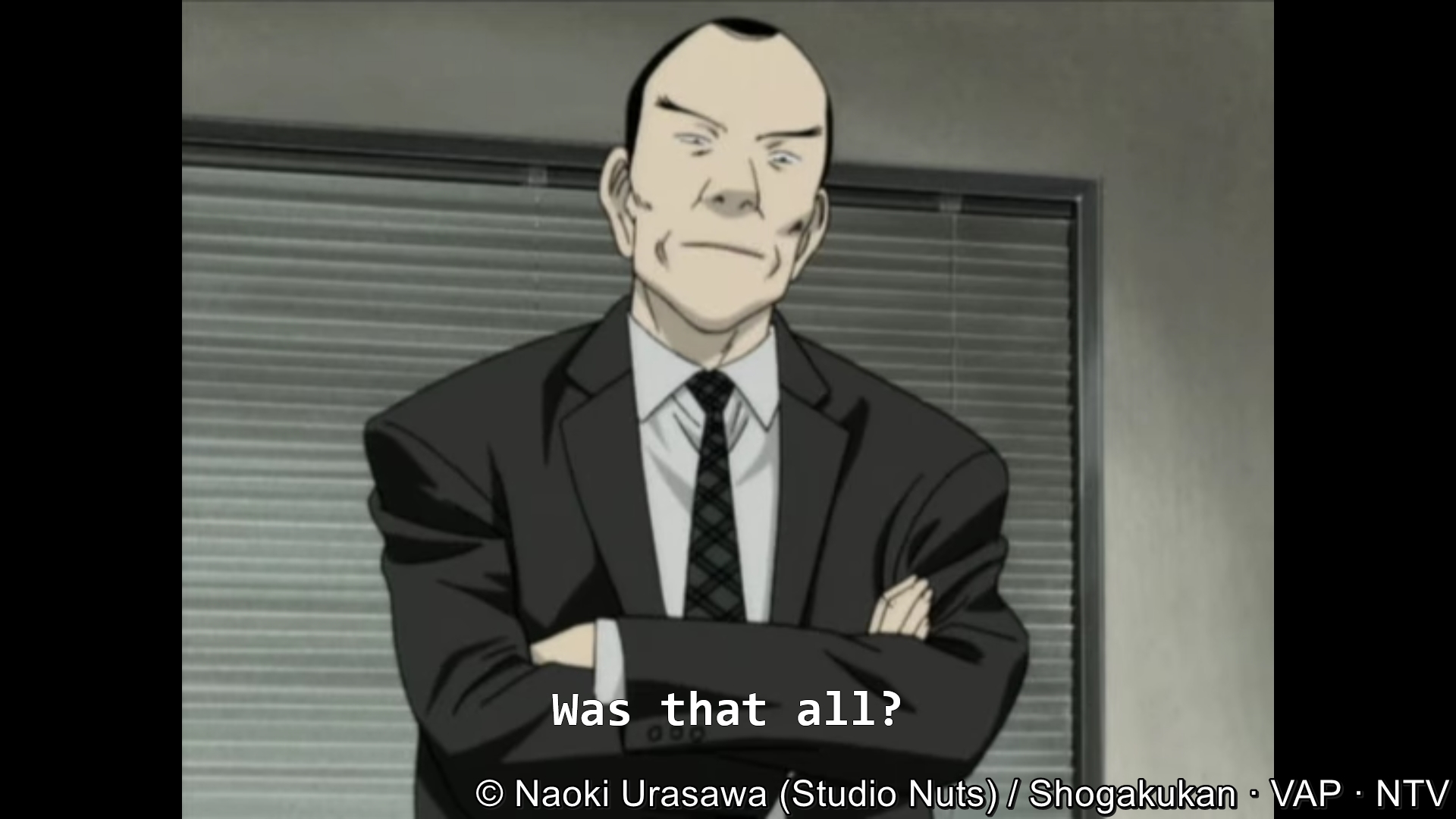
As Tenma realizes, and as Tenma already knows, sometimes ignorance is bliss.
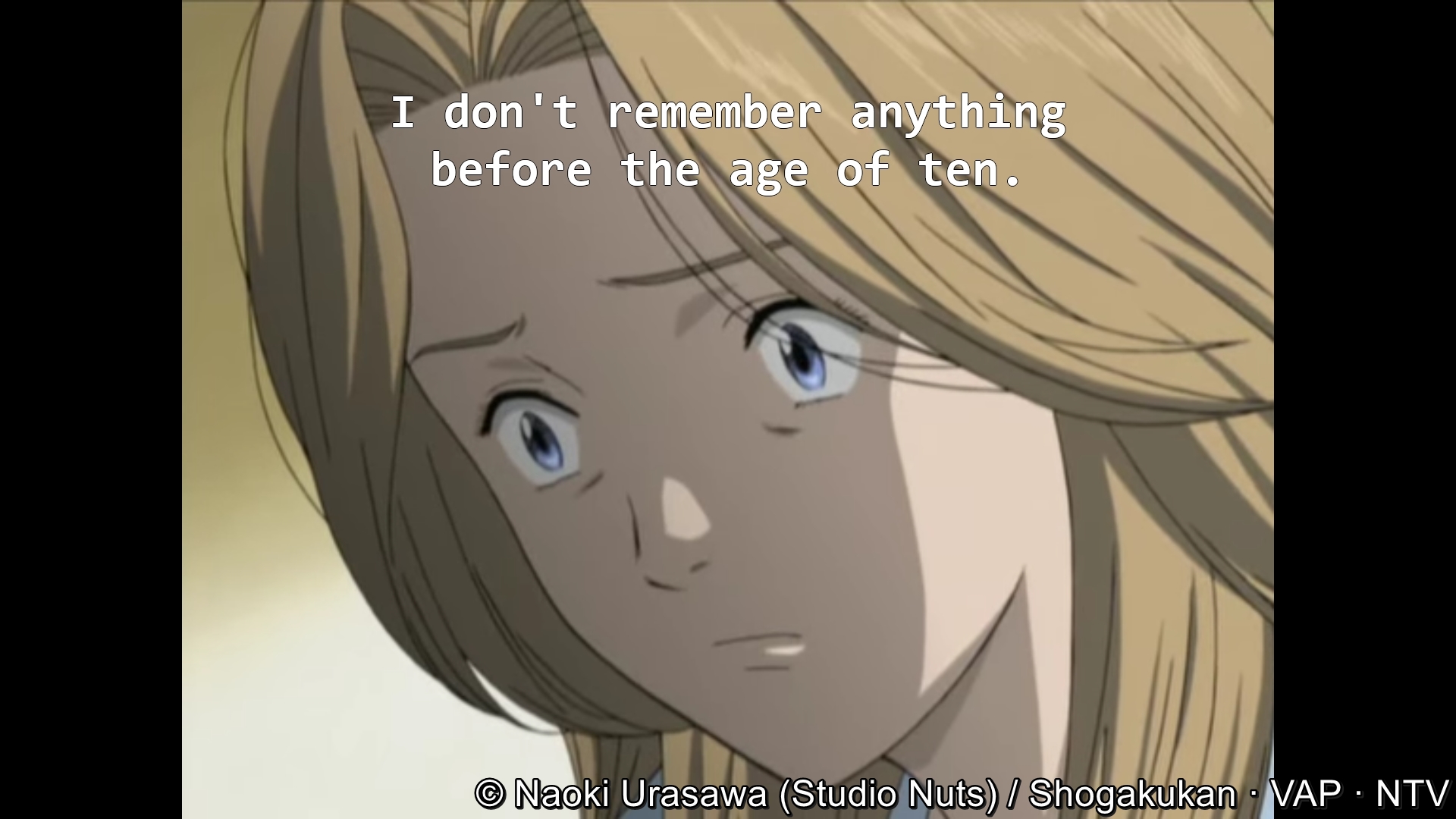

As Tenma realizes, and as Tenma already knows, sometimes ignorance is bliss.

Tenma wasn't the only one with a turn of luck. Now living as Nina, Anna seemed to be living a happy and normal life going to school to become a prosecutor while living with her (adopted) mother and father. Even her mysterious horrific reoccurring dreams seemed to have all but subsided!


It's quite a turn after the drama bomb of the fourth episode. We suddenly get thrust into the almost hilariously idyllic life of Nina here, who we can easily surmise is the grown-up twin sister from the prologue. But it still works with Monster's calculated buildup as we watch Nina study law, deliver pizzas, and practice kickin' ass at martial arts while waiting for another shoe to drop.

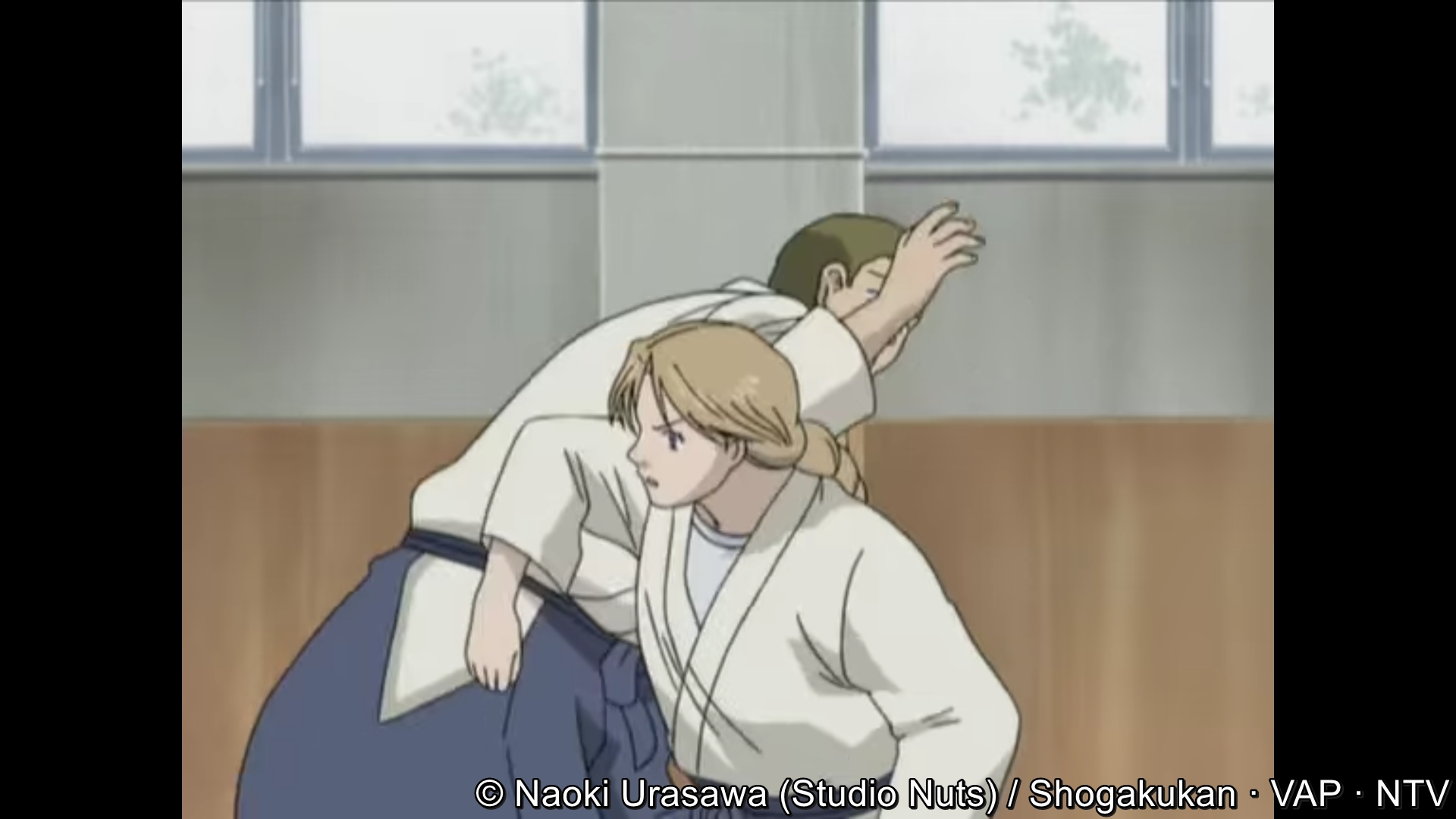
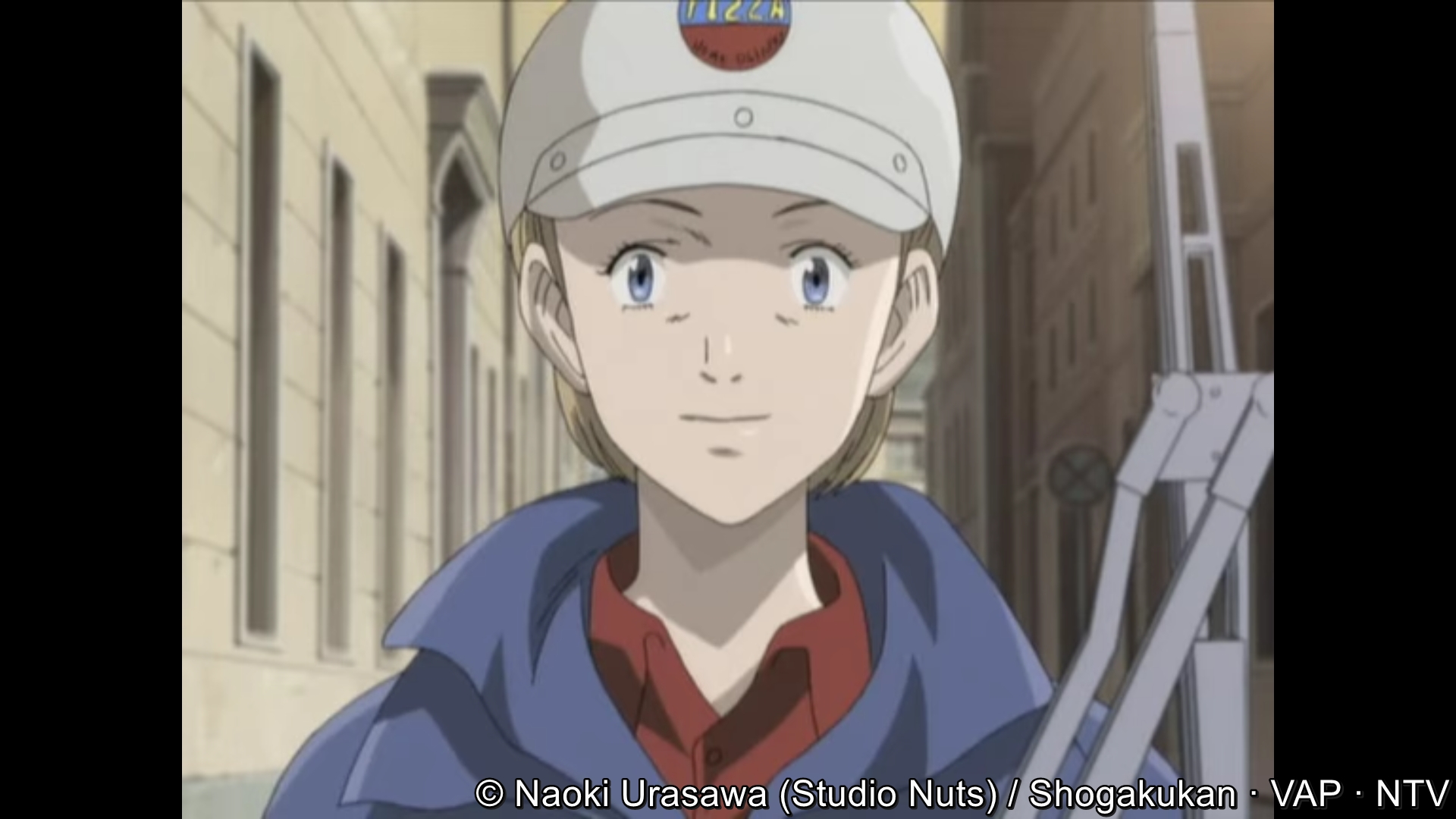

I don't know what I expected from Anna/Nina's somewhat limited characterization when she was a child. Still, she grows into a pretty cool character to center another chunk of the plot on here. She's another component of my excitement to continue following Monster after this column.




I don't know what I expected from Anna/Nina's somewhat limited characterization when she was a child. Still, she grows into a pretty cool character to center another chunk of the plot on here. She's another component of my excitement to continue following Monster after this column.
I'm amazed at Urasawa's ability to capture characters as individuals so well. Like Tenma before, Nina's sunny mundane life is overcast by the darkness wrought by a twin brother she cannot remember. Where there's sun, there's shade, correct? I even love how the people Tenma interviews all feel unique as he slowly transforms into looking a little more Columbo.


Look, we've already seen the extra-disheveled version of Tenma in the opening of each episode. Clearly, the most compelling character arc will be watching him slowly pull off that transformation.
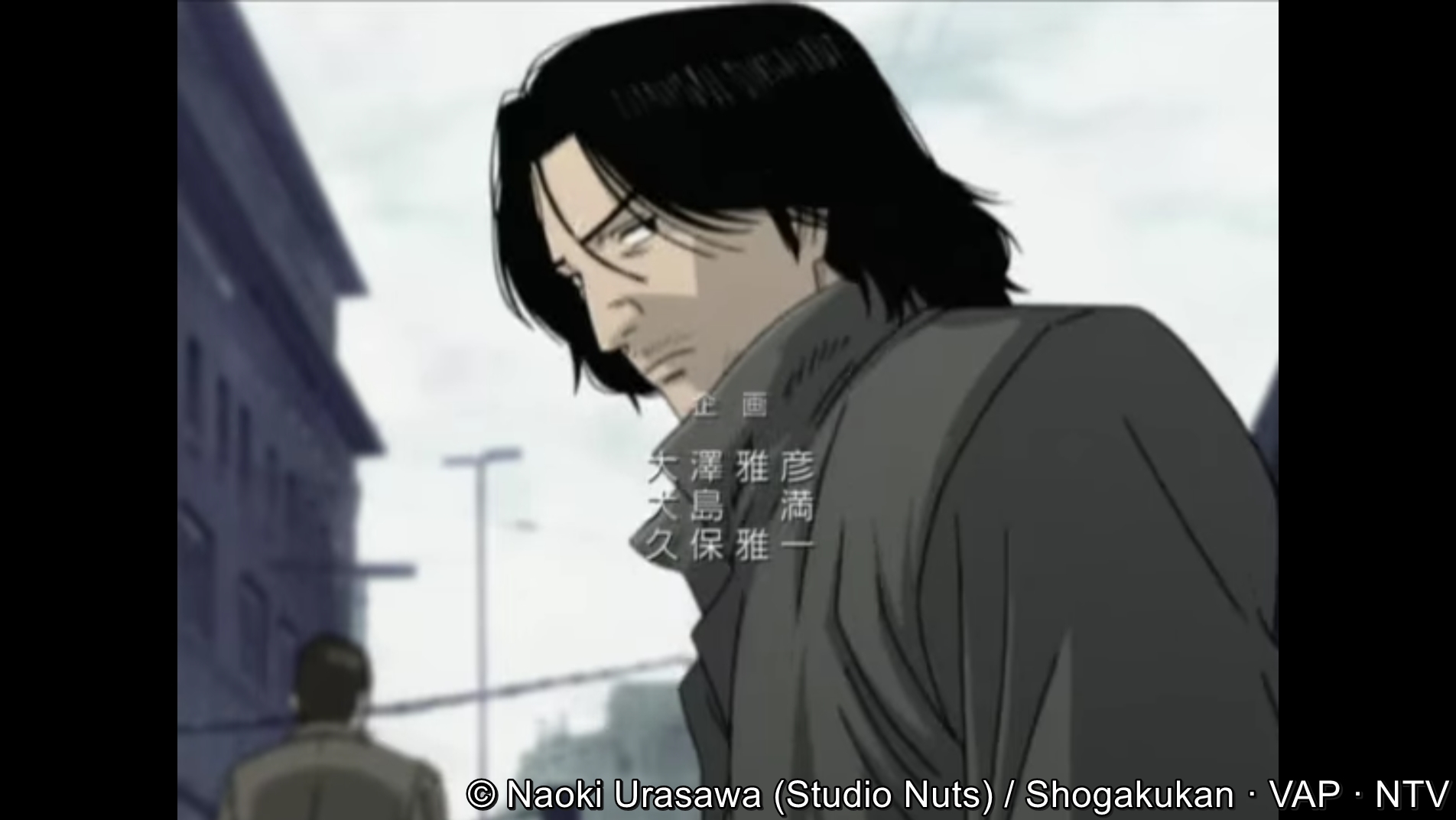

Like the opposite of getting more beautiful over time, the guy is slowly getting a little more rugged on the outside to match his tiredness levels. I call it the schlubification of Kenzo Tenma. Not necessarily a bad look. As he looks for Nina, he feels more active than just a guy working in a hospital. He even manages to get a lead after interviewing a blind ex-WWII German soldier who was one of Johan's neighbors.
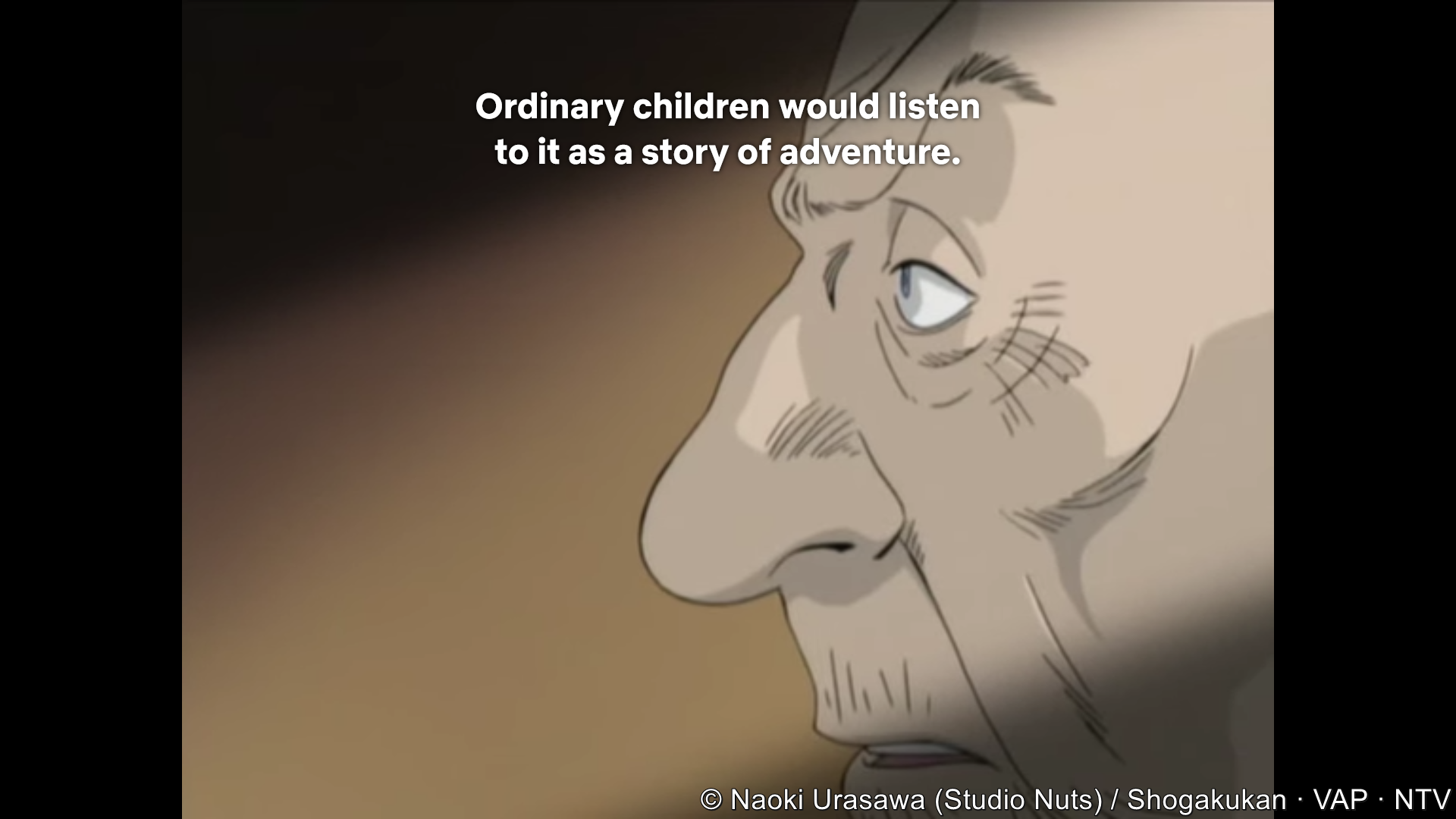







There was that moment of crystallization for me when I went, "Oh wait, if this guy's a veteran in this country, in this era, does that mean...?" only to immediately catch a glimpse of a Hitler pic in the background.
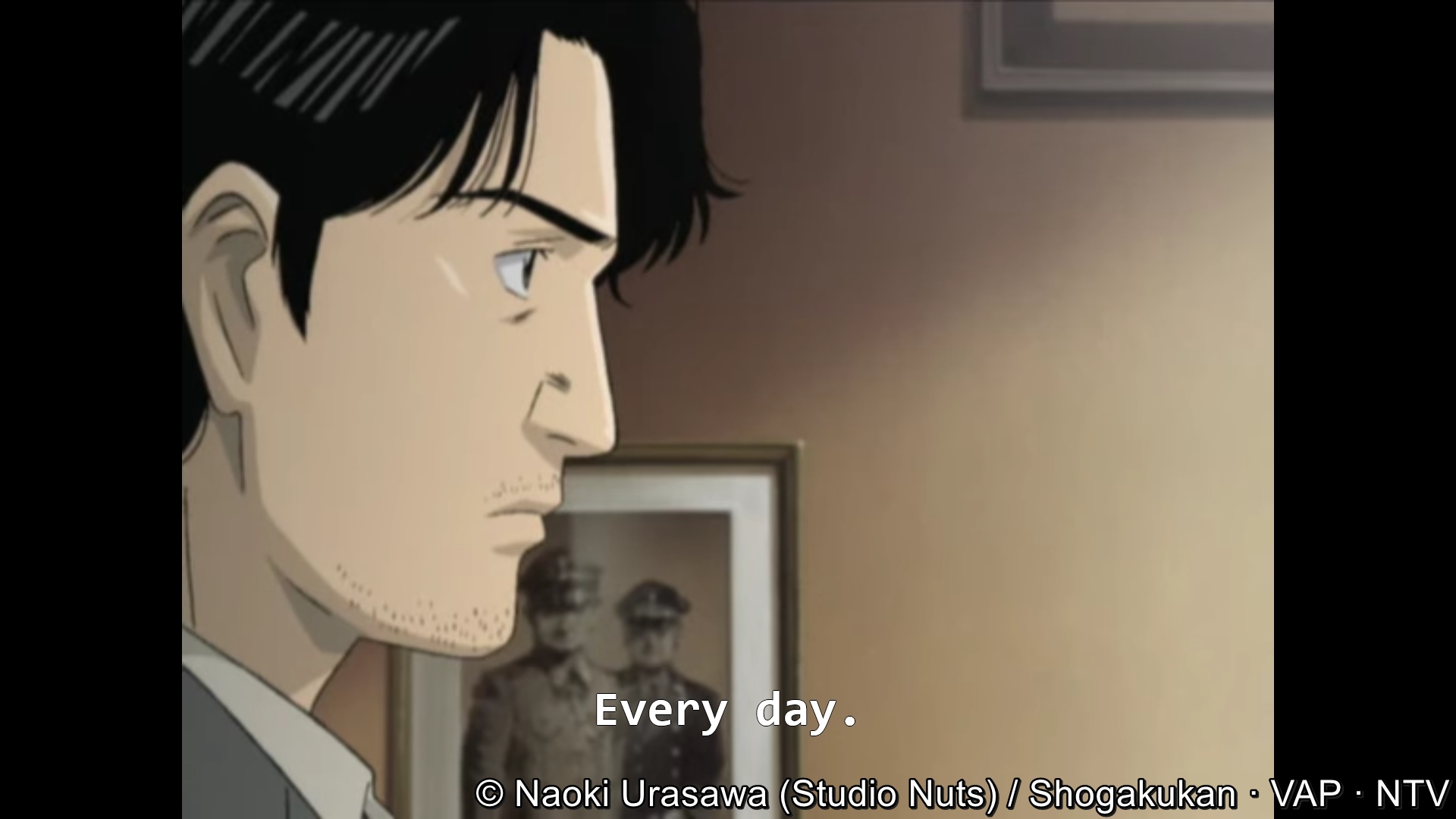
Finding out that young Johan was a weirdo who delighted in hearing Nazi war stories isn't perhaps the most surprising backstory swerve, knowing what we already do about what he's capable of. But it gets to showcase how Tenma's taken that much more active role in uncovering this story, just as Nina's dealing with the more psychological burdens of the mystery.
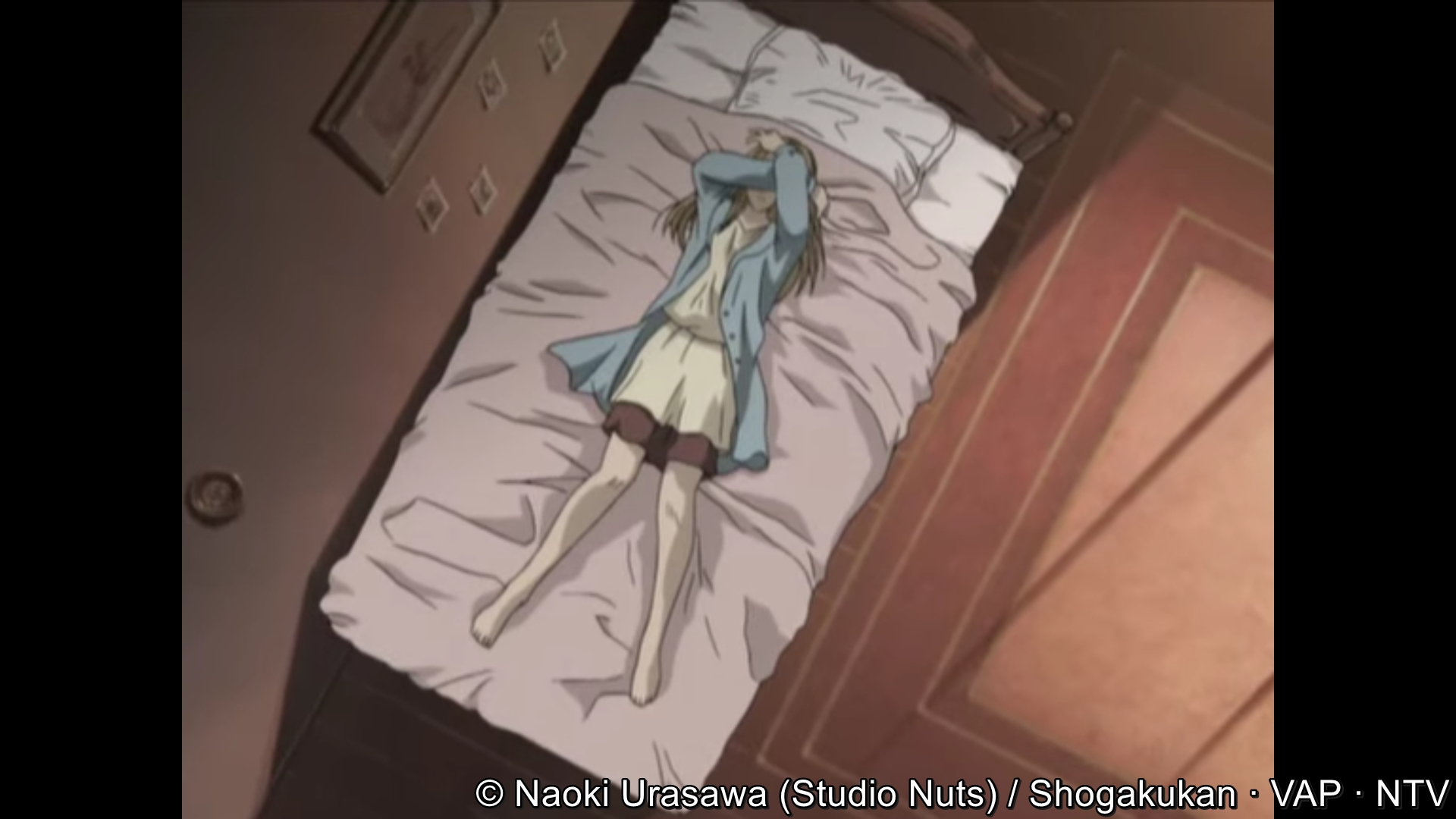

Finding out that young Johan was a weirdo who delighted in hearing Nazi war stories isn't perhaps the most surprising backstory swerve, knowing what we already do about what he's capable of. But it gets to showcase how Tenma's taken that much more active role in uncovering this story, just as Nina's dealing with the more psychological burdens of the mystery.

Again, Urasawa's not afraid to make things slightly political. Even when the flashforward happened, there was some chatter about the fall of the Berlin Wall. Anna and Johan's parents had defected from East Germany, as seen in the first scene. Everything about the setting isn't an accident. We don't always see the dark side of the moon, but that doesn't mean it doesn't exist. So much of life seems normal, but what makes Monster feel psychological is what's underneath, whether it's a country's history of war and strife or Nina's past kept hidden from her. The two feel connected. It doesn't show most of it directly, but it's enough that the mention can get under your skin.
Again, I don't know where Monster goes beyond this opening portion of the plot, so I wonder how dense Urasawa gets with the historical/political side of things. Though having Tenma be a Japanese immigrant to the country feels like the author coding in a point of this place and its past being viewed through foreign eyes.




At this stage, it's mostly background to the idea that, even with induced amnesia, a past can never be truly forgotten. Tenma still has to deal with the fallout of his interactions with the twins all those years ago, and Nina is still affected by whatever horrors her interactions with Johan led her to her current place in life.




At this stage, it's mostly background to the idea that, even with induced amnesia, a past can never be truly forgotten. Tenma still has to deal with the fallout of his interactions with the twins all those years ago, and Nina is still affected by whatever horrors her interactions with Johan led her to her current place in life.
Yeah, I don't know how deep it gets with Monster to spoil it, but his other work, 20th Century Boys, heavily deals with cults and conspiracies as part of its central opening premise. I don't feel like Monster is messing around, even if I don't entirely know its aim. Even the brief conversation Tenma has with a journalist about overwork feels relevant while simultaneously being one of the show's oddly warm glimpses of humanity and mirroring how he often neglects his human relationships in favor of his career and his ideals.








I love how Tenma can't help playing doctor and therapist for people he meets, even when he's trying to focus on the detective thing. It's a sharp characteristic detail!


His way of treating everyone like patients can be read as paternalistic or empathetic. But it's interesting how Tenma, the journalist, and the detective are all workaholics with no sense of separation. Everything they do becomes work. Though, artists are the worst perpetrators of this mentality.
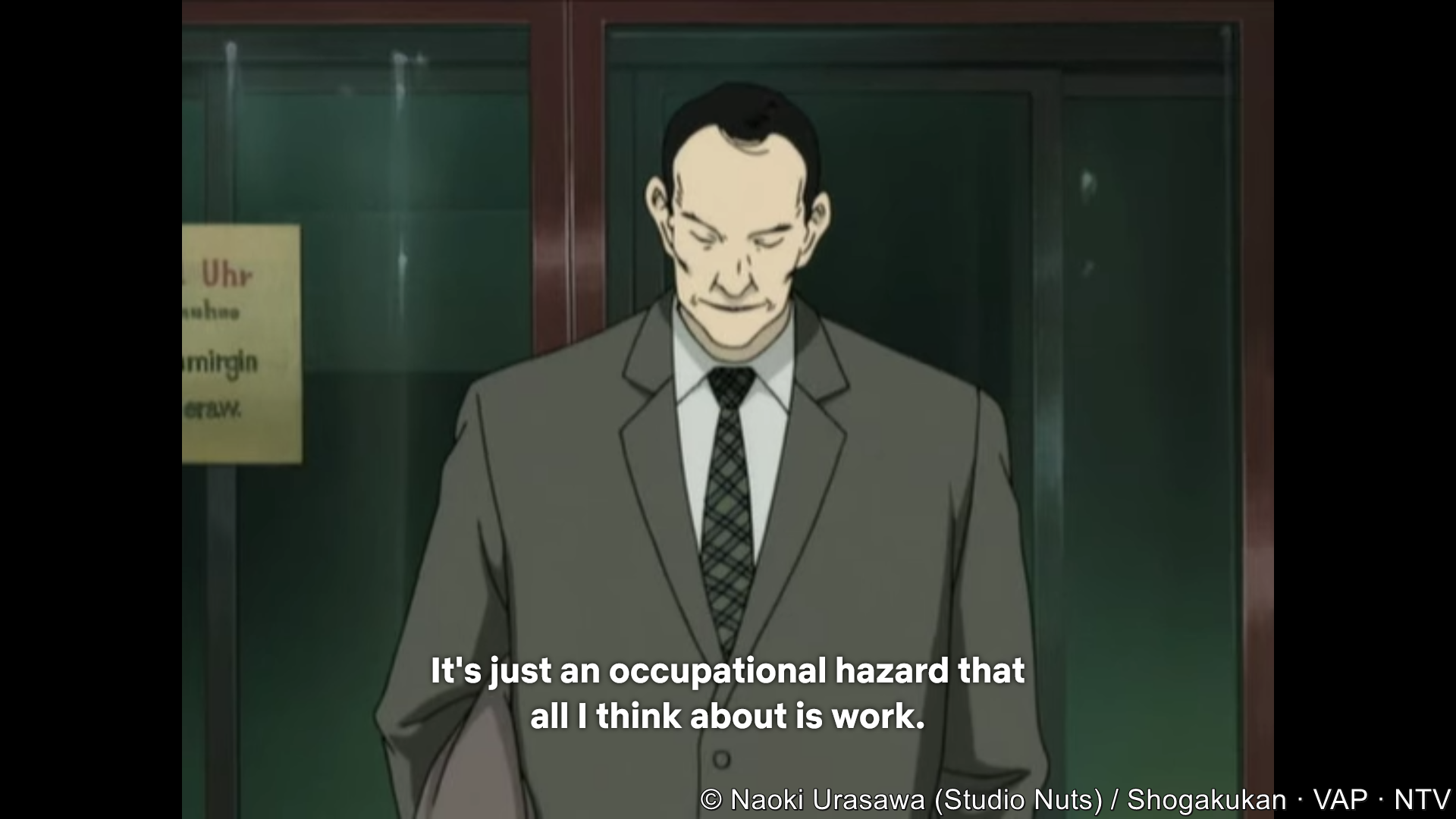

This is even apparent in Nina, who's busting her ass so hard between law school, a job, and Aikido practice, that she can barely make time for a sweet birthday party from her adopted parents or a poorly conceived date meetup from her friends.

It makes me wonder if the point of Monster is workaholism as a response to trauma and the desire not to deal with it. So where does that leave a horrific force like Johan and his seemingly cold, workmanlike approach to serial murder?

It makes me wonder if the point of Monster is workaholism as a response to trauma and the desire not to deal with it. So where does that leave a horrific force like Johan and his seemingly cold, workmanlike approach to serial murder?
We'll leave that as another mystery to be solved another day. But so far, six episodes of Monster have given us a lot to unfold. I want to make finishing this show one of my New Year's Resolutions, but that's assuming those other 34 episodes are released this year. That might be an issue with Netflix's puzzle box of a release schedule, but I hope this column serves as a good argument for everyone who hasn't seen the show to investigate it for themselves. It's worth sniffing out.
I know it's going to be a crowded proposition, getting into this show just as we're starting up a brand-new season, but you know I'm already invested in seeing it through too. Partly to uncover the mysteries and see the themes extrapolated on, but also to see if Nina will come through with any more sick surprise throws on dudes!

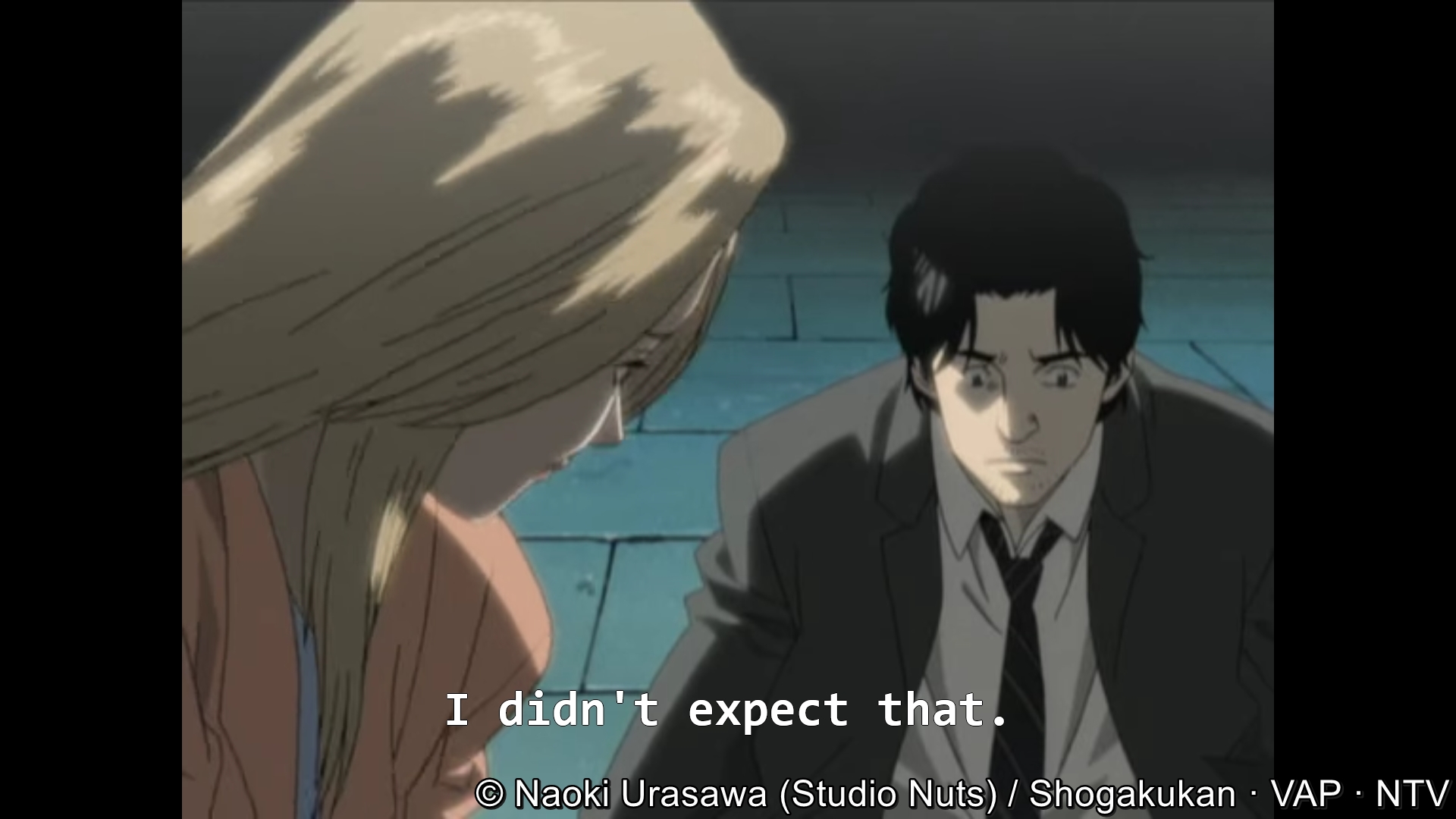


Look, they say out with the old and in with the new, but what if the "old" starts grabbing you and tossing you around the minute you try throwing it out? Then what? That's how this sudden re-release of Monster feels to me. Watch out, the past can get ya!
And that feeling is the sort of mystery I hope we can all look forward to spending the new year uncovering together!


discuss this in the forum (22 posts) |